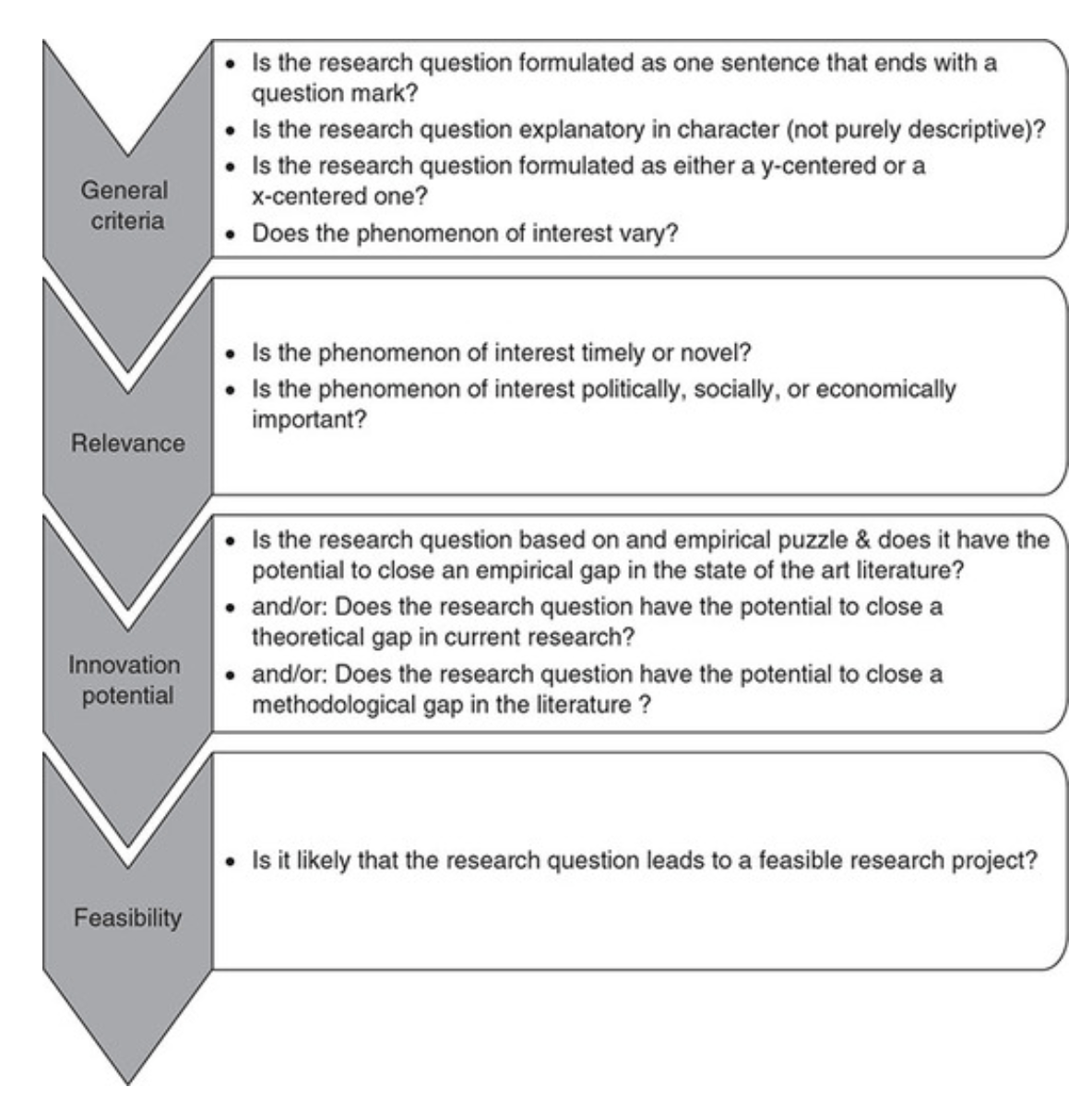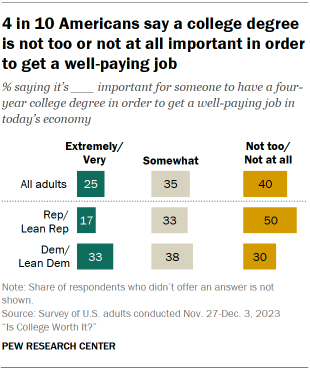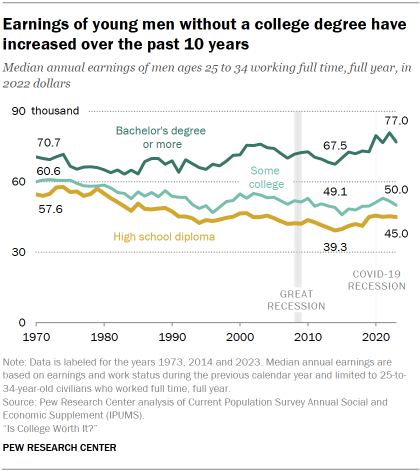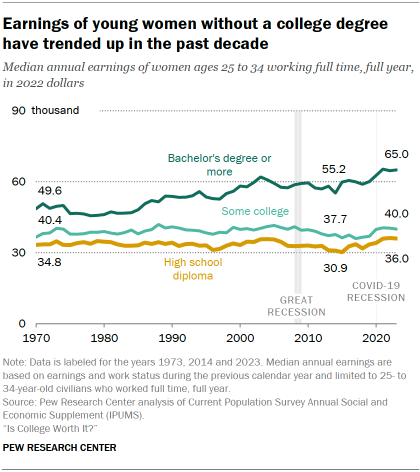- Privacy Policy

Home » Research Questions – Types, Examples and Writing Guide

Research Questions – Types, Examples and Writing Guide
Table of Contents

Research Questions
Definition:
Research questions are the specific questions that guide a research study or inquiry. These questions help to define the scope of the research and provide a clear focus for the study. Research questions are usually developed at the beginning of a research project and are designed to address a particular research problem or objective.
Types of Research Questions
Types of Research Questions are as follows:
Descriptive Research Questions
These aim to describe a particular phenomenon, group, or situation. For example:
- What are the characteristics of the target population?
- What is the prevalence of a particular disease in a specific region?
Exploratory Research Questions
These aim to explore a new area of research or generate new ideas or hypotheses. For example:
- What are the potential causes of a particular phenomenon?
- What are the possible outcomes of a specific intervention?
Explanatory Research Questions
These aim to understand the relationship between two or more variables or to explain why a particular phenomenon occurs. For example:
- What is the effect of a specific drug on the symptoms of a particular disease?
- What are the factors that contribute to employee turnover in a particular industry?
Predictive Research Questions
These aim to predict a future outcome or trend based on existing data or trends. For example :
- What will be the future demand for a particular product or service?
- What will be the future prevalence of a particular disease?
Evaluative Research Questions
These aim to evaluate the effectiveness of a particular intervention or program. For example:
- What is the impact of a specific educational program on student learning outcomes?
- What is the effectiveness of a particular policy or program in achieving its intended goals?
How to Choose Research Questions
Choosing research questions is an essential part of the research process and involves careful consideration of the research problem, objectives, and design. Here are some steps to consider when choosing research questions:
- Identify the research problem: Start by identifying the problem or issue that you want to study. This could be a gap in the literature, a social or economic issue, or a practical problem that needs to be addressed.
- Conduct a literature review: Conducting a literature review can help you identify existing research in your area of interest and can help you formulate research questions that address gaps or limitations in the existing literature.
- Define the research objectives : Clearly define the objectives of your research. What do you want to achieve with your study? What specific questions do you want to answer?
- Consider the research design : Consider the research design that you plan to use. This will help you determine the appropriate types of research questions to ask. For example, if you plan to use a qualitative approach, you may want to focus on exploratory or descriptive research questions.
- Ensure that the research questions are clear and answerable: Your research questions should be clear and specific, and should be answerable with the data that you plan to collect. Avoid asking questions that are too broad or vague.
- Get feedback : Get feedback from your supervisor, colleagues, or peers to ensure that your research questions are relevant, feasible, and meaningful.
How to Write Research Questions
Guide for Writing Research Questions:
- Start with a clear statement of the research problem: Begin by stating the problem or issue that your research aims to address. This will help you to formulate focused research questions.
- Use clear language : Write your research questions in clear and concise language that is easy to understand. Avoid using jargon or technical terms that may be unfamiliar to your readers.
- Be specific: Your research questions should be specific and focused. Avoid broad questions that are difficult to answer. For example, instead of asking “What is the impact of climate change on the environment?” ask “What are the effects of rising sea levels on coastal ecosystems?”
- Use appropriate question types: Choose the appropriate question types based on the research design and objectives. For example, if you are conducting a qualitative study, you may want to use open-ended questions that allow participants to provide detailed responses.
- Consider the feasibility of your questions : Ensure that your research questions are feasible and can be answered with the resources available. Consider the data sources and methods of data collection when writing your questions.
- Seek feedback: Get feedback from your supervisor, colleagues, or peers to ensure that your research questions are relevant, appropriate, and meaningful.
Examples of Research Questions
Some Examples of Research Questions with Research Titles:
Research Title: The Impact of Social Media on Mental Health
- Research Question : What is the relationship between social media use and mental health, and how does this impact individuals’ well-being?
Research Title: Factors Influencing Academic Success in High School
- Research Question: What are the primary factors that influence academic success in high school, and how do they contribute to student achievement?
Research Title: The Effects of Exercise on Physical and Mental Health
- Research Question: What is the relationship between exercise and physical and mental health, and how can exercise be used as a tool to improve overall well-being?
Research Title: Understanding the Factors that Influence Consumer Purchasing Decisions
- Research Question : What are the key factors that influence consumer purchasing decisions, and how do these factors vary across different demographics and products?
Research Title: The Impact of Technology on Communication
- Research Question : How has technology impacted communication patterns, and what are the effects of these changes on interpersonal relationships and society as a whole?
Research Title: Investigating the Relationship between Parenting Styles and Child Development
- Research Question: What is the relationship between different parenting styles and child development outcomes, and how do these outcomes vary across different ages and developmental stages?
Research Title: The Effectiveness of Cognitive-Behavioral Therapy in Treating Anxiety Disorders
- Research Question: How effective is cognitive-behavioral therapy in treating anxiety disorders, and what factors contribute to its success or failure in different patients?
Research Title: The Impact of Climate Change on Biodiversity
- Research Question : How is climate change affecting global biodiversity, and what can be done to mitigate the negative effects on natural ecosystems?
Research Title: Exploring the Relationship between Cultural Diversity and Workplace Productivity
- Research Question : How does cultural diversity impact workplace productivity, and what strategies can be employed to maximize the benefits of a diverse workforce?
Research Title: The Role of Artificial Intelligence in Healthcare
- Research Question: How can artificial intelligence be leveraged to improve healthcare outcomes, and what are the potential risks and ethical concerns associated with its use?
Applications of Research Questions
Here are some of the key applications of research questions:
- Defining the scope of the study : Research questions help researchers to narrow down the scope of their study and identify the specific issues they want to investigate.
- Developing hypotheses: Research questions often lead to the development of hypotheses, which are testable predictions about the relationship between variables. Hypotheses provide a clear and focused direction for the study.
- Designing the study : Research questions guide the design of the study, including the selection of participants, the collection of data, and the analysis of results.
- Collecting data : Research questions inform the selection of appropriate methods for collecting data, such as surveys, interviews, or experiments.
- Analyzing data : Research questions guide the analysis of data, including the selection of appropriate statistical tests and the interpretation of results.
- Communicating results : Research questions help researchers to communicate the results of their study in a clear and concise manner. The research questions provide a framework for discussing the findings and drawing conclusions.
Characteristics of Research Questions
Characteristics of Research Questions are as follows:
- Clear and Specific : A good research question should be clear and specific. It should clearly state what the research is trying to investigate and what kind of data is required.
- Relevant : The research question should be relevant to the study and should address a current issue or problem in the field of research.
- Testable : The research question should be testable through empirical evidence. It should be possible to collect data to answer the research question.
- Concise : The research question should be concise and focused. It should not be too broad or too narrow.
- Feasible : The research question should be feasible to answer within the constraints of the research design, time frame, and available resources.
- Original : The research question should be original and should contribute to the existing knowledge in the field of research.
- Significant : The research question should have significance and importance to the field of research. It should have the potential to provide new insights and knowledge to the field.
- Ethical : The research question should be ethical and should not cause harm to any individuals or groups involved in the study.
Purpose of Research Questions
Research questions are the foundation of any research study as they guide the research process and provide a clear direction to the researcher. The purpose of research questions is to identify the scope and boundaries of the study, and to establish the goals and objectives of the research.
The main purpose of research questions is to help the researcher to focus on the specific area or problem that needs to be investigated. They enable the researcher to develop a research design, select the appropriate methods and tools for data collection and analysis, and to organize the results in a meaningful way.
Research questions also help to establish the relevance and significance of the study. They define the research problem, and determine the research methodology that will be used to address the problem. Research questions also help to determine the type of data that will be collected, and how it will be analyzed and interpreted.
Finally, research questions provide a framework for evaluating the results of the research. They help to establish the validity and reliability of the data, and provide a basis for drawing conclusions and making recommendations based on the findings of the study.
Advantages of Research Questions
There are several advantages of research questions in the research process, including:
- Focus : Research questions help to focus the research by providing a clear direction for the study. They define the specific area of investigation and provide a framework for the research design.
- Clarity : Research questions help to clarify the purpose and objectives of the study, which can make it easier for the researcher to communicate the research aims to others.
- Relevance : Research questions help to ensure that the study is relevant and meaningful. By asking relevant and important questions, the researcher can ensure that the study will contribute to the existing body of knowledge and address important issues.
- Consistency : Research questions help to ensure consistency in the research process by providing a framework for the development of the research design, data collection, and analysis.
- Measurability : Research questions help to ensure that the study is measurable by defining the specific variables and outcomes that will be measured.
- Replication : Research questions help to ensure that the study can be replicated by providing a clear and detailed description of the research aims, methods, and outcomes. This makes it easier for other researchers to replicate the study and verify the results.
Limitations of Research Questions
Limitations of Research Questions are as follows:
- Subjectivity : Research questions are often subjective and can be influenced by personal biases and perspectives of the researcher. This can lead to a limited understanding of the research problem and may affect the validity and reliability of the study.
- Inadequate scope : Research questions that are too narrow in scope may limit the breadth of the study, while questions that are too broad may make it difficult to focus on specific research objectives.
- Unanswerable questions : Some research questions may not be answerable due to the lack of available data or limitations in research methods. In such cases, the research question may need to be rephrased or modified to make it more answerable.
- Lack of clarity : Research questions that are poorly worded or ambiguous can lead to confusion and misinterpretation. This can result in incomplete or inaccurate data, which may compromise the validity of the study.
- Difficulty in measuring variables : Some research questions may involve variables that are difficult to measure or quantify, making it challenging to draw meaningful conclusions from the data.
- Lack of generalizability: Research questions that are too specific or limited in scope may not be generalizable to other contexts or populations. This can limit the applicability of the study’s findings and restrict its broader implications.
About the author
Muhammad Hassan
Researcher, Academic Writer, Web developer
You may also like

Data Collection – Methods Types and Examples

Delimitations in Research – Types, Examples and...

Research Process – Steps, Examples and Tips

Research Design – Types, Methods and Examples

Institutional Review Board – Application Sample...

Evaluating Research – Process, Examples and...
- Affiliate Program

- UNITED STATES
- 台灣 (TAIWAN)
- TÜRKIYE (TURKEY)
- Academic Editing Services
- - Research Paper
- - Journal Manuscript
- - Dissertation
- - College & University Assignments
- Admissions Editing Services
- - Application Essay
- - Personal Statement
- - Recommendation Letter
- - Cover Letter
- - CV/Resume
- Business Editing Services
- - Business Documents
- - Report & Brochure
- - Website & Blog
- Writer Editing Services
- - Script & Screenplay
- Our Editors
- Client Reviews
- Editing & Proofreading Prices
- Wordvice Points
- Partner Discount
- Plagiarism Checker
- APA Citation Generator
- MLA Citation Generator
- Chicago Citation Generator
- Vancouver Citation Generator
- - APA Style
- - MLA Style
- - Chicago Style
- - Vancouver Style
- Writing & Editing Guide
- Academic Resources
- Admissions Resources
How to Write a Good Research Question (w/ Examples)
What is a Research Question?
A research question is the main question that your study sought or is seeking to answer. A clear research question guides your research paper or thesis and states exactly what you want to find out, giving your work a focus and objective. Learning how to write a hypothesis or research question is the start to composing any thesis, dissertation, or research paper. It is also one of the most important sections of a research proposal .
A good research question not only clarifies the writing in your study; it provides your readers with a clear focus and facilitates their understanding of your research topic, as well as outlining your study’s objectives. Before drafting the paper and receiving research paper editing (and usually before performing your study), you should write a concise statement of what this study intends to accomplish or reveal.
Research Question Writing Tips
Listed below are the important characteristics of a good research question:
A good research question should:
- Be clear and provide specific information so readers can easily understand the purpose.
- Be focused in its scope and narrow enough to be addressed in the space allowed by your paper
- Be relevant and concise and express your main ideas in as few words as possible, like a hypothesis.
- Be precise and complex enough that it does not simply answer a closed “yes or no” question, but requires an analysis of arguments and literature prior to its being considered acceptable.
- Be arguable or testable so that answers to the research question are open to scrutiny and specific questions and counterarguments.
Some of these characteristics might be difficult to understand in the form of a list. Let’s go into more detail about what a research question must do and look at some examples of research questions.
The research question should be specific and focused
Research questions that are too broad are not suitable to be addressed in a single study. One reason for this can be if there are many factors or variables to consider. In addition, a sample data set that is too large or an experimental timeline that is too long may suggest that the research question is not focused enough.
A specific research question means that the collective data and observations come together to either confirm or deny the chosen hypothesis in a clear manner. If a research question is too vague, then the data might end up creating an alternate research problem or hypothesis that you haven’t addressed in your Introduction section .
The research question should be based on the literature
An effective research question should be answerable and verifiable based on prior research because an effective scientific study must be placed in the context of a wider academic consensus. This means that conspiracy or fringe theories are not good research paper topics.
Instead, a good research question must extend, examine, and verify the context of your research field. It should fit naturally within the literature and be searchable by other research authors.
References to the literature can be in different citation styles and must be properly formatted according to the guidelines set forth by the publishing journal, university, or academic institution. This includes in-text citations as well as the Reference section .
The research question should be realistic in time, scope, and budget
There are two main constraints to the research process: timeframe and budget.
A proper research question will include study or experimental procedures that can be executed within a feasible time frame, typically by a graduate doctoral or master’s student or lab technician. Research that requires future technology, expensive resources, or follow-up procedures is problematic.
A researcher’s budget is also a major constraint to performing timely research. Research at many large universities or institutions is publicly funded and is thus accountable to funding restrictions.
The research question should be in-depth
Research papers, dissertations and theses , and academic journal articles are usually dozens if not hundreds of pages in length.
A good research question or thesis statement must be sufficiently complex to warrant such a length, as it must stand up to the scrutiny of peer review and be reproducible by other scientists and researchers.
Research Question Types
Qualitative and quantitative research are the two major types of research, and it is essential to develop research questions for each type of study.
Quantitative Research Questions
Quantitative research questions are specific. A typical research question involves the population to be studied, dependent and independent variables, and the research design.
In addition, quantitative research questions connect the research question and the research design. In addition, it is not possible to answer these questions definitively with a “yes” or “no” response. For example, scientific fields such as biology, physics, and chemistry often deal with “states,” in which different quantities, amounts, or velocities drastically alter the relevance of the research.
As a consequence, quantitative research questions do not contain qualitative, categorical, or ordinal qualifiers such as “is,” “are,” “does,” or “does not.”
Categories of quantitative research questions
Qualitative research questions.
In quantitative research, research questions have the potential to relate to broad research areas as well as more specific areas of study. Qualitative research questions are less directional, more flexible, and adaptable compared with their quantitative counterparts. Thus, studies based on these questions tend to focus on “discovering,” “explaining,” “elucidating,” and “exploring.”
Categories of qualitative research questions
Quantitative and qualitative research question examples.

Good and Bad Research Question Examples
Below are some good (and not-so-good) examples of research questions that researchers can use to guide them in crafting their own research questions.
Research Question Example 1
The first research question is too vague in both its independent and dependent variables. There is no specific information on what “exposure” means. Does this refer to comments, likes, engagement, or just how much time is spent on the social media platform?
Second, there is no useful information on what exactly “affected” means. Does the subject’s behavior change in some measurable way? Or does this term refer to another factor such as the user’s emotions?
Research Question Example 2
In this research question, the first example is too simple and not sufficiently complex, making it difficult to assess whether the study answered the question. The author could really only answer this question with a simple “yes” or “no.” Further, the presence of data would not help answer this question more deeply, which is a sure sign of a poorly constructed research topic.
The second research question is specific, complex, and empirically verifiable. One can measure program effectiveness based on metrics such as attendance or grades. Further, “bullying” is made into an empirical, quantitative measurement in the form of recorded disciplinary actions.
Steps for Writing a Research Question
Good research questions are relevant, focused, and meaningful. It can be difficult to come up with a good research question, but there are a few steps you can follow to make it a bit easier.
1. Start with an interesting and relevant topic
Choose a research topic that is interesting but also relevant and aligned with your own country’s culture or your university’s capabilities. Popular academic topics include healthcare and medical-related research. However, if you are attending an engineering school or humanities program, you should obviously choose a research question that pertains to your specific study and major.
Below is an embedded graph of the most popular research fields of study based on publication output according to region. As you can see, healthcare and the basic sciences receive the most funding and earn the highest number of publications.

2. Do preliminary research
You can begin doing preliminary research once you have chosen a research topic. Two objectives should be accomplished during this first phase of research. First, you should undertake a preliminary review of related literature to discover issues that scholars and peers are currently discussing. With this method, you show that you are informed about the latest developments in the field.
Secondly, identify knowledge gaps or limitations in your topic by conducting a preliminary literature review . It is possible to later use these gaps to focus your research question after a certain amount of fine-tuning.
3. Narrow your research to determine specific research questions
You can focus on a more specific area of study once you have a good handle on the topic you want to explore. Focusing on recent literature or knowledge gaps is one good option.
By identifying study limitations in the literature and overlooked areas of study, an author can carve out a good research question. The same is true for choosing research questions that extend or complement existing literature.
4. Evaluate your research question
Make sure you evaluate the research question by asking the following questions:
Is my research question clear?
The resulting data and observations that your study produces should be clear. For quantitative studies, data must be empirical and measurable. For qualitative, the observations should be clearly delineable across categories.
Is my research question focused and specific?
A strong research question should be specific enough that your methodology or testing procedure produces an objective result, not one left to subjective interpretation. Open-ended research questions or those relating to general topics can create ambiguous connections between the results and the aims of the study.
Is my research question sufficiently complex?
The result of your research should be consequential and substantial (and fall sufficiently within the context of your field) to warrant an academic study. Simply reinforcing or supporting a scientific consensus is superfluous and will likely not be well received by most journal editors.

Editing Your Research Question
Your research question should be fully formulated well before you begin drafting your research paper. However, you can receive English paper editing and proofreading services at any point in the drafting process. Language editors with expertise in your academic field can assist you with the content and language in your Introduction section or other manuscript sections. And if you need further assistance or information regarding paper compositions, in the meantime, check out our academic resources , which provide dozens of articles and videos on a variety of academic writing and publication topics.
Research Aims, Objectives & Questions
The “Golden Thread” Explained Simply (+ Examples)
By: David Phair (PhD) and Alexandra Shaeffer (PhD) | June 2022
The research aims , objectives and research questions (collectively called the “golden thread”) are arguably the most important thing you need to get right when you’re crafting a research proposal , dissertation or thesis . We receive questions almost every day about this “holy trinity” of research and there’s certainly a lot of confusion out there, so we’ve crafted this post to help you navigate your way through the fog.
Overview: The Golden Thread
- What is the golden thread
- What are research aims ( examples )
- What are research objectives ( examples )
- What are research questions ( examples )
- The importance of alignment in the golden thread
What is the “golden thread”?
The golden thread simply refers to the collective research aims , research objectives , and research questions for any given project (i.e., a dissertation, thesis, or research paper ). These three elements are bundled together because it’s extremely important that they align with each other, and that the entire research project aligns with them.
Importantly, the golden thread needs to weave its way through the entirety of any research project , from start to end. In other words, it needs to be very clearly defined right at the beginning of the project (the topic ideation and proposal stage) and it needs to inform almost every decision throughout the rest of the project. For example, your research design and methodology will be heavily influenced by the golden thread (we’ll explain this in more detail later), as well as your literature review.
The research aims, objectives and research questions (the golden thread) define the focus and scope ( the delimitations ) of your research project. In other words, they help ringfence your dissertation or thesis to a relatively narrow domain, so that you can “go deep” and really dig into a specific problem or opportunity. They also help keep you on track , as they act as a litmus test for relevance. In other words, if you’re ever unsure whether to include something in your document, simply ask yourself the question, “does this contribute toward my research aims, objectives or questions?”. If it doesn’t, chances are you can drop it.
Alright, enough of the fluffy, conceptual stuff. Let’s get down to business and look at what exactly the research aims, objectives and questions are and outline a few examples to bring these concepts to life.

Research Aims: What are they?
Simply put, the research aim(s) is a statement that reflects the broad overarching goal (s) of the research project. Research aims are fairly high-level (low resolution) as they outline the general direction of the research and what it’s trying to achieve .
Research Aims: Examples
True to the name, research aims usually start with the wording “this research aims to…”, “this research seeks to…”, and so on. For example:
“This research aims to explore employee experiences of digital transformation in retail HR.” “This study sets out to assess the interaction between student support and self-care on well-being in engineering graduate students”
As you can see, these research aims provide a high-level description of what the study is about and what it seeks to achieve. They’re not hyper-specific or action-oriented, but they’re clear about what the study’s focus is and what is being investigated.
Need a helping hand?
Research Objectives: What are they?
The research objectives take the research aims and make them more practical and actionable . In other words, the research objectives showcase the steps that the researcher will take to achieve the research aims.
The research objectives need to be far more specific (higher resolution) and actionable than the research aims. In fact, it’s always a good idea to craft your research objectives using the “SMART” criteria. In other words, they should be specific, measurable, achievable, relevant and time-bound”.
Research Objectives: Examples
Let’s look at two examples of research objectives. We’ll stick with the topic and research aims we mentioned previously.
For the digital transformation topic:
To observe the retail HR employees throughout the digital transformation. To assess employee perceptions of digital transformation in retail HR. To identify the barriers and facilitators of digital transformation in retail HR.
And for the student wellness topic:
To determine whether student self-care predicts the well-being score of engineering graduate students. To determine whether student support predicts the well-being score of engineering students. To assess the interaction between student self-care and student support when predicting well-being in engineering graduate students.
As you can see, these research objectives clearly align with the previously mentioned research aims and effectively translate the low-resolution aims into (comparatively) higher-resolution objectives and action points . They give the research project a clear focus and present something that resembles a research-based “to-do” list.

Research Questions: What are they?
Finally, we arrive at the all-important research questions. The research questions are, as the name suggests, the key questions that your study will seek to answer . Simply put, they are the core purpose of your dissertation, thesis, or research project. You’ll present them at the beginning of your document (either in the introduction chapter or literature review chapter) and you’ll answer them at the end of your document (typically in the discussion and conclusion chapters).
The research questions will be the driving force throughout the research process. For example, in the literature review chapter, you’ll assess the relevance of any given resource based on whether it helps you move towards answering your research questions. Similarly, your methodology and research design will be heavily influenced by the nature of your research questions. For instance, research questions that are exploratory in nature will usually make use of a qualitative approach, whereas questions that relate to measurement or relationship testing will make use of a quantitative approach.
Let’s look at some examples of research questions to make this more tangible.
Research Questions: Examples
Again, we’ll stick with the research aims and research objectives we mentioned previously.
For the digital transformation topic (which would be qualitative in nature):
How do employees perceive digital transformation in retail HR? What are the barriers and facilitators of digital transformation in retail HR?
And for the student wellness topic (which would be quantitative in nature):
Does student self-care predict the well-being scores of engineering graduate students? Does student support predict the well-being scores of engineering students? Do student self-care and student support interact when predicting well-being in engineering graduate students?
You’ll probably notice that there’s quite a formulaic approach to this. In other words, the research questions are basically the research objectives “converted” into question format. While that is true most of the time, it’s not always the case. For example, the first research objective for the digital transformation topic was more or less a step on the path toward the other objectives, and as such, it didn’t warrant its own research question.
So, don’t rush your research questions and sloppily reword your objectives as questions. Carefully think about what exactly you’re trying to achieve (i.e. your research aim) and the objectives you’ve set out, then craft a set of well-aligned research questions . Also, keep in mind that this can be a somewhat iterative process , where you go back and tweak research objectives and aims to ensure tight alignment throughout the golden thread.
The importance of strong alignment
Alignment is the keyword here and we have to stress its importance . Simply put, you need to make sure that there is a very tight alignment between all three pieces of the golden thread. If your research aims and research questions don’t align, for example, your project will be pulling in different directions and will lack focus . This is a common problem students face and can cause many headaches (and tears), so be warned.
Take the time to carefully craft your research aims, objectives and research questions before you run off down the research path. Ideally, get your research supervisor/advisor to review and comment on your golden thread before you invest significant time into your project, and certainly before you start collecting data .
Recap: The golden thread
In this post, we unpacked the golden thread of research, consisting of the research aims , research objectives and research questions . You can jump back to any section using the links below.
As always, feel free to leave a comment below – we always love to hear from you. Also, if you’re interested in 1-on-1 support, take a look at our private coaching service here.

Psst... there’s more!
This post was based on one of our popular Research Bootcamps . If you're working on a research project, you'll definitely want to check this out ...
You Might Also Like:

39 Comments
Thank you very much for your great effort put. As an Undergraduate taking Demographic Research & Methodology, I’ve been trying so hard to understand clearly what is a Research Question, Research Aim and the Objectives in a research and the relationship between them etc. But as for now I’m thankful that you’ve solved my problem.
Well appreciated. This has helped me greatly in doing my dissertation.
An so delighted with this wonderful information thank you a lot.
so impressive i have benefited a lot looking forward to learn more on research.
I am very happy to have carefully gone through this well researched article.
Infact,I used to be phobia about anything research, because of my poor understanding of the concepts.
Now,I get to know that my research question is the same as my research objective(s) rephrased in question format.
I please I would need a follow up on the subject,as I intends to join the team of researchers. Thanks once again.
Thanks so much. This was really helpful.
I know you pepole have tried to break things into more understandable and easy format. And God bless you. Keep it up
i found this document so useful towards my study in research methods. thanks so much.
This is my 2nd read topic in your course and I should commend the simplified explanations of each part. I’m beginning to understand and absorb the use of each part of a dissertation/thesis. I’ll keep on reading your free course and might be able to avail the training course! Kudos!
Thank you! Better put that my lecture and helped to easily understand the basics which I feel often get brushed over when beginning dissertation work.
This is quite helpful. I like how the Golden thread has been explained and the needed alignment.
This is quite helpful. I really appreciate!
The article made it simple for researcher students to differentiate between three concepts.
Very innovative and educational in approach to conducting research.
I am very impressed with all these terminology, as I am a fresh student for post graduate, I am highly guided and I promised to continue making consultation when the need arise. Thanks a lot.
A very helpful piece. thanks, I really appreciate it .
Very well explained, and it might be helpful to many people like me.
Wish i had found this (and other) resource(s) at the beginning of my PhD journey… not in my writing up year… 😩 Anyways… just a quick question as i’m having some issues ordering my “golden thread”…. does it matter in what order you mention them? i.e., is it always first aims, then objectives, and finally the questions? or can you first mention the research questions and then the aims and objectives?
Thank you for a very simple explanation that builds upon the concepts in a very logical manner. Just prior to this, I read the research hypothesis article, which was equally very good. This met my primary objective.
My secondary objective was to understand the difference between research questions and research hypothesis, and in which context to use which one. However, I am still not clear on this. Can you kindly please guide?
In research, a research question is a clear and specific inquiry that the researcher wants to answer, while a research hypothesis is a tentative statement or prediction about the relationship between variables or the expected outcome of the study. Research questions are broader and guide the overall study, while hypotheses are specific and testable statements used in quantitative research. Research questions identify the problem, while hypotheses provide a focus for testing in the study.
Exactly what I need in this research journey, I look forward to more of your coaching videos.
This helped a lot. Thanks so much for the effort put into explaining it.
What data source in writing dissertation/Thesis requires?
What is data source covers when writing dessertation/thesis
This is quite useful thanks
I’m excited and thankful. I got so much value which will help me progress in my thesis.
where are the locations of the reserch statement, research objective and research question in a reserach paper? Can you write an ouline that defines their places in the researh paper?
Very helpful and important tips on Aims, Objectives and Questions.
Thank you so much for making research aim, research objectives and research question so clear. This will be helpful to me as i continue with my thesis.
Thanks much for this content. I learned a lot. And I am inspired to learn more. I am still struggling with my preparation for dissertation outline/proposal. But I consistently follow contents and tutorials and the new FB of GRAD Coach. Hope to really become confident in writing my dissertation and successfully defend it.
As a researcher and lecturer, I find splitting research goals into research aims, objectives, and questions is unnecessarily bureaucratic and confusing for students. For most biomedical research projects, including ‘real research’, 1-3 research questions will suffice (numbers may differ by discipline).
Awesome! Very important resources and presented in an informative way to easily understand the golden thread. Indeed, thank you so much.
Well explained
The blog article on research aims, objectives, and questions by Grad Coach is a clear and insightful guide that aligns with my experiences in academic research. The article effectively breaks down the often complex concepts of research aims and objectives, providing a straightforward and accessible explanation. Drawing from my own research endeavors, I appreciate the practical tips offered, such as the need for specificity and clarity when formulating research questions. The article serves as a valuable resource for students and researchers, offering a concise roadmap for crafting well-defined research goals and objectives. Whether you’re a novice or an experienced researcher, this article provides practical insights that contribute to the foundational aspects of a successful research endeavor.
A great thanks for you. it is really amazing explanation. I grasp a lot and one step up to research knowledge.
I really found these tips helpful. Thank you very much Grad Coach.
I found this article helpful. Thanks for sharing this.
thank you so much, the explanation and examples are really helpful
Submit a Comment Cancel reply
Your email address will not be published. Required fields are marked *
Save my name, email, and website in this browser for the next time I comment.
- Print Friendly
- Research Questions: Definitions, Types + [Examples]

Research questions lie at the core of systematic investigation and this is because recording accurate research outcomes is tied to asking the right questions. Asking the right questions when conducting research can help you collect relevant and insightful information that ultimately influences your work, positively.
The right research questions are typically easy to understand, straight to the point, and engaging. In this article, we will share tips on how to create the right research questions and also show you how to create and administer an online questionnaire with Formplus .
What is a Research Question?
A research question is a specific inquiry which the research seeks to provide a response to. It resides at the core of systematic investigation and it helps you to clearly define a path for the research process.
A research question is usually the first step in any research project. Basically, it is the primary interrogation point of your research and it sets the pace for your work.
Typically, a research question focuses on the research, determines the methodology and hypothesis, and guides all stages of inquiry, analysis, and reporting. With the right research questions, you will be able to gather useful information for your investigation.
Types of Research Questions
Research questions are broadly categorized into 2; that is, qualitative research questions and quantitative research questions. Qualitative and quantitative research questions can be used independently and co-dependently in line with the overall focus and objectives of your research.
If your research aims at collecting quantifiable data , you will need to make use of quantitative research questions. On the other hand, qualitative questions help you to gather qualitative data bothering on the perceptions and observations of your research subjects.
Qualitative Research Questions
A qualitative research question is a type of systematic inquiry that aims at collecting qualitative data from research subjects. The aim of qualitative research questions is to gather non-statistical information pertaining to the experiences, observations, and perceptions of the research subjects in line with the objectives of the investigation.
Types of Qualitative Research Questions
- Ethnographic Research Questions
As the name clearly suggests, ethnographic research questions are inquiries presented in ethnographic research. Ethnographic research is a qualitative research approach that involves observing variables in their natural environments or habitats in order to arrive at objective research outcomes.
These research questions help the researcher to gather insights into the habits, dispositions, perceptions, and behaviors of research subjects as they interact in specific environments.
Ethnographic research questions can be used in education, business, medicine, and other fields of study, and they are very useful in contexts aimed at collecting in-depth and specific information that are peculiar to research variables. For instance, asking educational ethnographic research questions can help you understand how pedagogy affects classroom relations and behaviors.
This type of research question can be administered physically through one-on-one interviews, naturalism (live and work), and participant observation methods. Alternatively, the researcher can ask ethnographic research questions via online surveys and questionnaires created with Formplus.
Examples of Ethnographic Research Questions
- Why do you use this product?
- Have you noticed any side effects since you started using this drug?
- Does this product meet your needs?
- Case Studies
A case study is a qualitative research approach that involves carrying out a detailed investigation into a research subject(s) or variable(s). In the course of a case study, the researcher gathers a range of data from multiple sources of information via different data collection methods, and over a period of time.
The aim of a case study is to analyze specific issues within definite contexts and arrive at detailed research subject analyses by asking the right questions. This research method can be explanatory, descriptive , or exploratory depending on the focus of your systematic investigation or research.
An explanatory case study is one that seeks to gather information on the causes of real-life occurrences. This type of case study uses “how” and “why” questions in order to gather valid information about the causative factors of an event.
Descriptive case studies are typically used in business researches, and they aim at analyzing the impact of changing market dynamics on businesses. On the other hand, exploratory case studies aim at providing answers to “who” and “what” questions using data collection tools like interviews and questionnaires.
Some questions you can include in your case studies are:
- Why did you choose our services?
- How has this policy affected your business output?
- What benefits have you recorded since you started using our product?
An interview is a qualitative research method that involves asking respondents a series of questions in order to gather information about a research subject. Interview questions can be close-ended or open-ended , and they prompt participants to provide valid information that is useful to the research.
An interview may also be structured, semi-structured , or unstructured , and this further influences the types of questions they include. Structured interviews are made up of more close-ended questions because they aim at gathering quantitative data while unstructured interviews consist, primarily, of open-ended questions that allow the researcher to collect qualitative information from respondents.
You can conduct interview research by scheduling a physical meeting with respondents, through a telephone conversation, and via digital media and video conferencing platforms like Skype and Zoom. Alternatively, you can use Formplus surveys and questionnaires for your interview.
Examples of interview questions include:
- What challenges did you face while using our product?
- What specific needs did our product meet?
- What would you like us to improve our service delivery?
Quantitative Research Questions
Quantitative research questions are questions that are used to gather quantifiable data from research subjects. These types of research questions are usually more specific and direct because they aim at collecting information that can be measured; that is, statistical information.
Types of Quantitative Research Questions
- Descriptive Research Questions
Descriptive research questions are inquiries that researchers use to gather quantifiable data about the attributes and characteristics of research subjects. These types of questions primarily seek responses that reveal existing patterns in the nature of the research subjects.
It is important to note that descriptive research questions are not concerned with the causative factors of the discovered attributes and characteristics. Rather, they focus on the “what”; that is, describing the subject of the research without paying attention to the reasons for its occurrence.
Descriptive research questions are typically closed-ended because they aim at gathering definite and specific responses from research participants. Also, they can be used in customer experience surveys and market research to collect information about target markets and consumer behaviors.
Descriptive Research Question Examples
- How often do you make use of our fitness application?
- How much would you be willing to pay for this product?
- Comparative Research Questions
A comparative research question is a type of quantitative research question that is used to gather information about the differences between two or more research subjects across different variables. These types of questions help the researcher to identify distinct features that mark one research subject from the other while highlighting existing similarities.
Asking comparative research questions in market research surveys can provide insights on how your product or service matches its competitors. In addition, it can help you to identify the strengths and weaknesses of your product for a better competitive advantage.
The 5 steps involved in the framing of comparative research questions are:
- Choose your starting phrase
- Identify and name the dependent variable
- Identify the groups you are interested in
- Identify the appropriate adjoining text
- Write out the comparative research question
Comparative Research Question Samples
- What are the differences between a landline telephone and a smartphone?
- What are the differences between work-from-home and on-site operations?
- Relationship-based Research Questions
Just like the name suggests, a relationship-based research question is one that inquires into the nature of the association between two research subjects within the same demographic. These types of research questions help you to gather information pertaining to the nature of the association between two research variables.
Relationship-based research questions are also known as correlational research questions because they seek to clearly identify the link between 2 variables.
Read: Correlational Research Designs: Types, Examples & Methods
Examples of relationship-based research questions include:
- What is the relationship between purchasing power and the business site?
- What is the relationship between the work environment and workforce turnover?
Examples of a Good Research Question
Since research questions lie at the core of any systematic investigations, it is important to know how to frame a good research question. The right research questions will help you to gather the most objective responses that are useful to your systematic investigation.
A good research question is one that requires impartial responses and can be answered via existing sources of information. Also, a good research question seeks answers that actively contribute to a body of knowledge; hence, it is a question that is yet to be answered in your specific research context.
- Open-Ended Questions
An open-ended question is a type of research question that does not restrict respondents to a set of premeditated answer options. In other words, it is a question that allows the respondent to freely express his or her perceptions and feelings towards the research subject.
Examples of Open-ended Questions
- How do you deal with stress in the workplace?
- What is a typical day at work like for you?
- Close-ended Questions
A close-ended question is a type of survey question that restricts respondents to a set of predetermined answers such as multiple-choice questions . Close-ended questions typically require yes or no answers and are commonly used in quantitative research to gather numerical data from research participants.
Examples of Close-ended Questions
- Did you enjoy this event?
- How likely are you to recommend our services?
- Very Likely
- Somewhat Likely
- Likert Scale Questions
A Likert scale question is a type of close-ended question that is structured as a 3-point, 5-point, or 7-point psychometric scale . This type of question is used to measure the survey respondent’s disposition towards multiple variables and it can be unipolar or bipolar in nature.
Example of Likert Scale Questions
- How satisfied are you with our service delivery?
- Very dissatisfied
- Not satisfied
- Very satisfied
- Rating Scale Questions
A rating scale question is a type of close-ended question that seeks to associate a specific qualitative measure (rating) with the different variables in research. It is commonly used in customer experience surveys, market research surveys, employee reviews, and product evaluations.
Example of Rating Questions
- How would you rate our service delivery?
Examples of a Bad Research Question
Knowing what bad research questions are would help you avoid them in the course of your systematic investigation. These types of questions are usually unfocused and often result in research biases that can negatively impact the outcomes of your systematic investigation.
- Loaded Questions
A loaded question is a question that subtly presupposes one or more unverified assumptions about the research subject or participant. This type of question typically boxes the respondent in a corner because it suggests implicit and explicit biases that prevent objective responses.
Example of Loaded Questions
- Have you stopped smoking?
- Where did you hide the money?
- Negative Questions
A negative question is a type of question that is structured with an implicit or explicit negator. Negative questions can be misleading because they upturn the typical yes/no response order by requiring a negative answer for affirmation and an affirmative answer for negation.
Examples of Negative Questions
- Would you mind dropping by my office later today?
- Didn’t you visit last week?
- Leading Questions
A l eading question is a type of survey question that nudges the respondent towards an already-determined answer. It is highly suggestive in nature and typically consists of biases and unverified assumptions that point toward its premeditated responses.
Examples of Leading Questions
- If you enjoyed this service, would you be willing to try out our other packages?
- Our product met your needs, didn’t it?
Read More: Leading Questions: Definition, Types, and Examples
How to Use Formplus as Online Research Questionnaire Tool
With Formplus, you can create and administer your online research questionnaire easily. In the form builder, you can add different form fields to your questionnaire and edit these fields to reflect specific research questions for your systematic investigation.
Here is a step-by-step guide on how to create an online research questionnaire with Formplus:
- Sign in to your Formplus accoun t, then click on the “create new form” button in your dashboard to access the Form builder.
- In the form builder, add preferred form fields to your online research questionnaire by dragging and dropping them into the form. Add a title to your form in the title block. You can edit form fields by clicking on the “pencil” icon on the right corner of each form field.
- Save the form to access the customization section of the builder. Here, you can tweak the appearance of your online research questionnaire by adding background images, changing the form font, and adding your organization’s logo.
- Finally, copy your form link and share it with respondents. You can also use any of the multiple sharing options available.
Conclusion
The success of your research starts with framing the right questions to help you collect the most valid and objective responses. Be sure to avoid bad research questions like loaded and negative questions that can be misleading and adversely affect your research data and outcomes.
Your research questions should clearly reflect the aims and objectives of your systematic investigation while laying emphasis on specific contexts. To help you seamlessly gather responses for your research questions, you can create an online research questionnaire on Formplus.

Connect to Formplus, Get Started Now - It's Free!
- abstract in research papers
- bad research questions
- examples of research questions
- types of research questions
- busayo.longe

You may also like:
How to do a Meta Analysis: Methodology, Pros & Cons
In this article, we’ll go through the concept of meta-analysis, what it can be used for, and how you can use it to improve how you...

How to Write a Problem Statement for your Research
Learn how to write problem statements before commencing any research effort. Learn about its structure and explore examples
Research Summary: What Is It & How To Write One
Introduction A research summary is a requirement during academic research and sometimes you might need to prepare a research summary...
How to Write An Abstract For Research Papers: Tips & Examples
In this article, we will share some tips for writing an effective abstract, plus samples you can learn from.
Formplus - For Seamless Data Collection
Collect data the right way with a versatile data collection tool. try formplus and transform your work productivity today..
Ohio State nav bar
The Ohio State University
- BuckeyeLink
- Find People
- Search Ohio State
Research Questions & Hypotheses
Generally, in quantitative studies, reviewers expect hypotheses rather than research questions. However, both research questions and hypotheses serve different purposes and can be beneficial when used together.
Research Questions
Clarify the research’s aim (farrugia et al., 2010).
- Research often begins with an interest in a topic, but a deep understanding of the subject is crucial to formulate an appropriate research question.
- Descriptive: “What factors most influence the academic achievement of senior high school students?”
- Comparative: “What is the performance difference between teaching methods A and B?”
- Relationship-based: “What is the relationship between self-efficacy and academic achievement?”
- Increasing knowledge about a subject can be achieved through systematic literature reviews, in-depth interviews with patients (and proxies), focus groups, and consultations with field experts.
- Some funding bodies, like the Canadian Institute for Health Research, recommend conducting a systematic review or a pilot study before seeking grants for full trials.
- The presence of multiple research questions in a study can complicate the design, statistical analysis, and feasibility.
- It’s advisable to focus on a single primary research question for the study.
- The primary question, clearly stated at the end of a grant proposal’s introduction, usually specifies the study population, intervention, and other relevant factors.
- The FINER criteria underscore aspects that can enhance the chances of a successful research project, including specifying the population of interest, aligning with scientific and public interest, clinical relevance, and contribution to the field, while complying with ethical and national research standards.
- The P ICOT approach is crucial in developing the study’s framework and protocol, influencing inclusion and exclusion criteria and identifying patient groups for inclusion.
- Defining the specific population, intervention, comparator, and outcome helps in selecting the right outcome measurement tool.
- The more precise the population definition and stricter the inclusion and exclusion criteria, the more significant the impact on the interpretation, applicability, and generalizability of the research findings.
- A restricted study population enhances internal validity but may limit the study’s external validity and generalizability to clinical practice.
- A broadly defined study population may better reflect clinical practice but could increase bias and reduce internal validity.
- An inadequately formulated research question can negatively impact study design, potentially leading to ineffective outcomes and affecting publication prospects.
Checklist: Good research questions for social science projects (Panke, 2018)

Research Hypotheses
Present the researcher’s predictions based on specific statements.
- These statements define the research problem or issue and indicate the direction of the researcher’s predictions.
- Formulating the research question and hypothesis from existing data (e.g., a database) can lead to multiple statistical comparisons and potentially spurious findings due to chance.
- The research or clinical hypothesis, derived from the research question, shapes the study’s key elements: sampling strategy, intervention, comparison, and outcome variables.
- Hypotheses can express a single outcome or multiple outcomes.
- After statistical testing, the null hypothesis is either rejected or not rejected based on whether the study’s findings are statistically significant.
- Hypothesis testing helps determine if observed findings are due to true differences and not chance.
- Hypotheses can be 1-sided (specific direction of difference) or 2-sided (presence of a difference without specifying direction).
- 2-sided hypotheses are generally preferred unless there’s a strong justification for a 1-sided hypothesis.
- A solid research hypothesis, informed by a good research question, influences the research design and paves the way for defining clear research objectives.
Types of Research Hypothesis
- In a Y-centered research design, the focus is on the dependent variable (DV) which is specified in the research question. Theories are then used to identify independent variables (IV) and explain their causal relationship with the DV.
- Example: “An increase in teacher-led instructional time (IV) is likely to improve student reading comprehension scores (DV), because extensive guided practice under expert supervision enhances learning retention and skill mastery.”
- Hypothesis Explanation: The dependent variable (student reading comprehension scores) is the focus, and the hypothesis explores how changes in the independent variable (teacher-led instructional time) affect it.
- In X-centered research designs, the independent variable is specified in the research question. Theories are used to determine potential dependent variables and the causal mechanisms at play.
- Example: “Implementing technology-based learning tools (IV) is likely to enhance student engagement in the classroom (DV), because interactive and multimedia content increases student interest and participation.”
- Hypothesis Explanation: The independent variable (technology-based learning tools) is the focus, with the hypothesis exploring its impact on a potential dependent variable (student engagement).
- Probabilistic hypotheses suggest that changes in the independent variable are likely to lead to changes in the dependent variable in a predictable manner, but not with absolute certainty.
- Example: “The more teachers engage in professional development programs (IV), the more their teaching effectiveness (DV) is likely to improve, because continuous training updates pedagogical skills and knowledge.”
- Hypothesis Explanation: This hypothesis implies a probable relationship between the extent of professional development (IV) and teaching effectiveness (DV).
- Deterministic hypotheses state that a specific change in the independent variable will lead to a specific change in the dependent variable, implying a more direct and certain relationship.
- Example: “If the school curriculum changes from traditional lecture-based methods to project-based learning (IV), then student collaboration skills (DV) are expected to improve because project-based learning inherently requires teamwork and peer interaction.”
- Hypothesis Explanation: This hypothesis presumes a direct and definite outcome (improvement in collaboration skills) resulting from a specific change in the teaching method.
- Example : “Students who identify as visual learners will score higher on tests that are presented in a visually rich format compared to tests presented in a text-only format.”
- Explanation : This hypothesis aims to describe the potential difference in test scores between visual learners taking visually rich tests and text-only tests, without implying a direct cause-and-effect relationship.
- Example : “Teaching method A will improve student performance more than method B.”
- Explanation : This hypothesis compares the effectiveness of two different teaching methods, suggesting that one will lead to better student performance than the other. It implies a direct comparison but does not necessarily establish a causal mechanism.
- Example : “Students with higher self-efficacy will show higher levels of academic achievement.”
- Explanation : This hypothesis predicts a relationship between the variable of self-efficacy and academic achievement. Unlike a causal hypothesis, it does not necessarily suggest that one variable causes changes in the other, but rather that they are related in some way.
Tips for developing research questions and hypotheses for research studies
- Perform a systematic literature review (if one has not been done) to increase knowledge and familiarity with the topic and to assist with research development.
- Learn about current trends and technological advances on the topic.
- Seek careful input from experts, mentors, colleagues, and collaborators to refine your research question as this will aid in developing the research question and guide the research study.
- Use the FINER criteria in the development of the research question.
- Ensure that the research question follows PICOT format.
- Develop a research hypothesis from the research question.
- Ensure that the research question and objectives are answerable, feasible, and clinically relevant.
If your research hypotheses are derived from your research questions, particularly when multiple hypotheses address a single question, it’s recommended to use both research questions and hypotheses. However, if this isn’t the case, using hypotheses over research questions is advised. It’s important to note these are general guidelines, not strict rules. If you opt not to use hypotheses, consult with your supervisor for the best approach.
Farrugia, P., Petrisor, B. A., Farrokhyar, F., & Bhandari, M. (2010). Practical tips for surgical research: Research questions, hypotheses and objectives. Canadian journal of surgery. Journal canadien de chirurgie , 53 (4), 278–281.
Hulley, S. B., Cummings, S. R., Browner, W. S., Grady, D., & Newman, T. B. (2007). Designing clinical research. Philadelphia.
Panke, D. (2018). Research design & method selection: Making good choices in the social sciences. Research Design & Method Selection , 1-368.
Root out friction in every digital experience, super-charge conversion rates, and optimize digital self-service
Uncover insights from any interaction, deliver AI-powered agent coaching, and reduce cost to serve
Increase revenue and loyalty with real-time insights and recommendations delivered to teams on the ground
Know how your people feel and empower managers to improve employee engagement, productivity, and retention
Take action in the moments that matter most along the employee journey and drive bottom line growth
Whatever they’re are saying, wherever they’re saying it, know exactly what’s going on with your people
Get faster, richer insights with qual and quant tools that make powerful market research available to everyone
Run concept tests, pricing studies, prototyping + more with fast, powerful studies designed by UX research experts
Track your brand performance 24/7 and act quickly to respond to opportunities and challenges in your market
Explore the platform powering Experience Management
- Free Account
- For Digital
- For Customer Care
- For Human Resources
- For Researchers
- Financial Services
- All Industries
Popular Use Cases
- Customer Experience
- Employee Experience
- Net Promoter Score
- Voice of Customer
- Customer Success Hub
- Product Documentation
- Training & Certification
- XM Institute
- Popular Resources
- Customer Stories
- Artificial Intelligence
Market Research
- Partnerships
- Marketplace
The annual gathering of the experience leaders at the world’s iconic brands building breakthrough business results, live in Salt Lake City.
- English/AU & NZ
- Español/Europa
- Español/América Latina
- Português Brasileiro
- REQUEST DEMO
- Experience Management
- Qualitative Research Questions
Try Qualtrics for free
How to write qualitative research questions.
11 min read Here’s how to write effective qualitative research questions for your projects, and why getting it right matters so much.
What is qualitative research?
Qualitative research is a blanket term covering a wide range of research methods and theoretical framing approaches. The unifying factor in all these types of qualitative study is that they deal with data that cannot be counted. Typically this means things like people’s stories, feelings, opinions and emotions , and the meanings they ascribe to their experiences.
Qualitative study is one of two main categories of research, the other being quantitative research. Quantitative research deals with numerical data – that which can be counted and quantified, and which is mostly concerned with trends and patterns in large-scale datasets.
What are research questions?
Research questions are questions you are trying to answer with your research. To put it another way, your research question is the reason for your study, and the beginning point for your research design. There is normally only one research question per study, although if your project is very complex, you may have multiple research questions that are closely linked to one central question.
A good qualitative research question sums up your research objective. It’s a way of expressing the central question of your research, identifying your particular topic and the central issue you are examining.
Research questions are quite different from survey questions, questions used in focus groups or interview questions. A long list of questions is used in these types of study, as opposed to one central question. Additionally, interview or survey questions are asked of participants, whereas research questions are only for the researcher to maintain a clear understanding of the research design.
Research questions are used in both qualitative and quantitative research , although what makes a good research question might vary between the two.
In fact, the type of research questions you are asking can help you decide whether you need to take a quantitative or qualitative approach to your research project.
Discover the fundamentals of qualitative research
Quantitative vs. qualitative research questions
Writing research questions is very important in both qualitative and quantitative research, but the research questions that perform best in the two types of studies are quite different.
Quantitative research questions
Quantitative research questions usually relate to quantities, similarities and differences.
It might reflect the researchers’ interest in determining whether relationships between variables exist, and if so whether they are statistically significant. Or it may focus on establishing differences between things through comparison, and using statistical analysis to determine whether those differences are meaningful or due to chance.
- How much? This kind of research question is one of the simplest. It focuses on quantifying something. For example:
How many Yoruba speakers are there in the state of Maine?
- What is the connection?
This type of quantitative research question examines how one variable affects another.
For example:
How does a low level of sunlight affect the mood scores (1-10) of Antarctic explorers during winter?
- What is the difference? Quantitative research questions in this category identify two categories and measure the difference between them using numerical data.
Do white cats stay cooler than tabby cats in hot weather?
If your research question fits into one of the above categories, you’re probably going to be doing a quantitative study.
Qualitative research questions
Qualitative research questions focus on exploring phenomena, meanings and experiences.
Unlike quantitative research, qualitative research isn’t about finding causal relationships between variables. So although qualitative research questions might touch on topics that involve one variable influencing another, or looking at the difference between things, finding and quantifying those relationships isn’t the primary objective.
In fact, you as a qualitative researcher might end up studying a very similar topic to your colleague who is doing a quantitative study, but your areas of focus will be quite different. Your research methods will also be different – they might include focus groups, ethnography studies, and other kinds of qualitative study.
A few example qualitative research questions:
- What is it like being an Antarctic explorer during winter?
- What are the experiences of Yoruba speakers in the USA?
- How do white cat owners describe their pets?
Qualitative research question types

Marshall and Rossman (1989) identified 4 qualitative research question types, each with its own typical research strategy and methods.
- Exploratory questions
Exploratory questions are used when relatively little is known about the research topic. The process researchers follow when pursuing exploratory questions might involve interviewing participants, holding focus groups, or diving deep with a case study.
- Explanatory questions
With explanatory questions, the research topic is approached with a view to understanding the causes that lie behind phenomena. However, unlike a quantitative project, the focus of explanatory questions is on qualitative analysis of multiple interconnected factors that have influenced a particular group or area, rather than a provable causal link between dependent and independent variables.
- Descriptive questions
As the name suggests, descriptive questions aim to document and record what is happening. In answering descriptive questions , researchers might interact directly with participants with surveys or interviews, as well as using observational studies and ethnography studies that collect data on how participants interact with their wider environment.
- Predictive questions
Predictive questions start from the phenomena of interest and investigate what ramifications it might have in the future. Answering predictive questions may involve looking back as well as forward, with content analysis, questionnaires and studies of non-verbal communication (kinesics).
Why are good qualitative research questions important?
We know research questions are very important. But what makes them so essential? (And is that question a qualitative or quantitative one?)
Getting your qualitative research questions right has a number of benefits.
- It defines your qualitative research project Qualitative research questions definitively nail down the research population, the thing you’re examining, and what the nature of your answer will be.This means you can explain your research project to other people both inside and outside your business or organization. That could be critical when it comes to securing funding for your project, recruiting participants and members of your research team, and ultimately for publishing your results. It can also help you assess right the ethical considerations for your population of study.
- It maintains focus Good qualitative research questions help researchers to stick to the area of focus as they carry out their research. Keeping the research question in mind will help them steer away from tangents during their research or while they are carrying out qualitative research interviews. This holds true whatever the qualitative methods are, whether it’s a focus group, survey, thematic analysis or other type of inquiry.That doesn’t mean the research project can’t morph and change during its execution – sometimes this is acceptable and even welcome – but having a research question helps demarcate the starting point for the research. It can be referred back to if the scope and focus of the project does change.
- It helps make sure your outcomes are achievable
Because qualitative research questions help determine the kind of results you’re going to get, it helps make sure those results are achievable. By formulating good qualitative research questions in advance, you can make sure the things you want to know and the way you’re going to investigate them are grounded in practical reality. Otherwise, you may be at risk of taking on a research project that can’t be satisfactorily completed.
Developing good qualitative research questions
All researchers use research questions to define their parameters, keep their study on track and maintain focus on the research topic. This is especially important with qualitative questions, where there may be exploratory or inductive methods in use that introduce researchers to new and interesting areas of inquiry. Here are some tips for writing good qualitative research questions.
1. Keep it specific
Broader research questions are difficult to act on. They may also be open to interpretation, or leave some parameters undefined.
Strong example: How do Baby Boomers in the USA feel about their gender identity?
Weak example: Do people feel different about gender now?
2. Be original
Look for research questions that haven’t been widely addressed by others already.
Strong example: What are the effects of video calling on women’s experiences of work?
Weak example: Are women given less respect than men at work?
3. Make it research-worthy
Don’t ask a question that can be answered with a ‘yes’ or ‘no’, or with a quick Google search.
Strong example: What do people like and dislike about living in a highly multi-lingual country?
Weak example: What languages are spoken in India?
4. Focus your question
Don’t roll multiple topics or questions into one. Qualitative data may involve multiple topics, but your qualitative questions should be focused.
Strong example: What is the experience of disabled children and their families when using social services?
Weak example: How can we improve social services for children affected by poverty and disability?
4. Focus on your own discipline, not someone else’s
Avoid asking questions that are for the politicians, police or others to address.
Strong example: What does it feel like to be the victim of a hate crime?
Weak example: How can hate crimes be prevented?
5. Ask something researchable
Big questions, questions about hypothetical events or questions that would require vastly more resources than you have access to are not useful starting points for qualitative studies. Qualitative words or subjective ideas that lack definition are also not helpful.
Strong example: How do perceptions of physical beauty vary between today’s youth and their parents’ generation?
Weak example: Which country has the most beautiful people in it?
Related resources
Qualitative research design 12 min read, primary vs secondary research 14 min read, business research methods 12 min read, qualitative research interviews 11 min read, market intelligence 10 min read, marketing insights 11 min read, ethnographic research 11 min read, request demo.
Ready to learn more about Qualtrics?

Get science-backed answers as you write with Paperpal's Research feature
How to Write a Research Question: Types and Examples

The first step in any research project is framing the research question. It can be considered the core of any systematic investigation as the research outcomes are tied to asking the right questions. Thus, this primary interrogation point sets the pace for your research as it helps collect relevant and insightful information that ultimately influences your work.
Typically, the research question guides the stages of inquiry, analysis, and reporting. Depending on the use of quantifiable or quantitative data, research questions are broadly categorized into quantitative or qualitative research questions. Both types of research questions can be used independently or together, considering the overall focus and objectives of your research.
What is a research question?
A research question is a clear, focused, concise, and arguable question on which your research and writing are centered. 1 It states various aspects of the study, including the population and variables to be studied and the problem the study addresses. These questions also set the boundaries of the study, ensuring cohesion.
Designing the research question is a dynamic process where the researcher can change or refine the research question as they review related literature and develop a framework for the study. Depending on the scale of your research, the study can include single or multiple research questions.
A good research question has the following features:
- It is relevant to the chosen field of study.
- The question posed is arguable and open for debate, requiring synthesizing and analysis of ideas.
- It is focused and concisely framed.
- A feasible solution is possible within the given practical constraint and timeframe.
A poorly formulated research question poses several risks. 1
- Researchers can adopt an erroneous design.
- It can create confusion and hinder the thought process, including developing a clear protocol.
- It can jeopardize publication efforts.
- It causes difficulty in determining the relevance of the study findings.
- It causes difficulty in whether the study fulfils the inclusion criteria for systematic review and meta-analysis. This creates challenges in determining whether additional studies or data collection is needed to answer the question.
- Readers may fail to understand the objective of the study. This reduces the likelihood of the study being cited by others.
Now that you know “What is a research question?”, let’s look at the different types of research questions.
Types of research questions
Depending on the type of research to be done, research questions can be classified broadly into quantitative, qualitative, or mixed-methods studies. Knowing the type of research helps determine the best type of research question that reflects the direction and epistemological underpinnings of your research.
The structure and wording of quantitative 2 and qualitative research 3 questions differ significantly. The quantitative study looks at causal relationships, whereas the qualitative study aims at exploring a phenomenon.
- Quantitative research questions:
- Seeks to investigate social, familial, or educational experiences or processes in a particular context and/or location.
- Answers ‘how,’ ‘what,’ or ‘why’ questions.
- Investigates connections, relations, or comparisons between independent and dependent variables.
Quantitative research questions can be further categorized into descriptive, comparative, and relationship, as explained in the Table below.
- Qualitative research questions
Qualitative research questions are adaptable, non-directional, and more flexible. It concerns broad areas of research or more specific areas of study to discover, explain, or explore a phenomenon. These are further classified as follows:
- Mixed-methods studies
Mixed-methods studies use both quantitative and qualitative research questions to answer your research question. Mixed methods provide a complete picture than standalone quantitative or qualitative research, as it integrates the benefits of both methods. Mixed methods research is often used in multidisciplinary settings and complex situational or societal research, especially in the behavioral, health, and social science fields.
What makes a good research question
A good research question should be clear and focused to guide your research. It should synthesize multiple sources to present your unique argument, and should ideally be something that you are interested in. But avoid questions that can be answered in a few factual statements. The following are the main attributes of a good research question.
- Specific: The research question should not be a fishing expedition performed in the hopes that some new information will be found that will benefit the researcher. The central research question should work with your research problem to keep your work focused. If using multiple questions, they should all tie back to the central aim.
- Measurable: The research question must be answerable using quantitative and/or qualitative data or from scholarly sources to develop your research question. If such data is impossible to access, it is better to rethink your question.
- Attainable: Ensure you have enough time and resources to do all research required to answer your question. If it seems you will not be able to gain access to the data you need, consider narrowing down your question to be more specific.
- You have the expertise
- You have the equipment and resources
- Realistic: Developing your research question should be based on initial reading about your topic. It should focus on addressing a problem or gap in the existing knowledge in your field or discipline.
- Based on some sort of rational physics
- Can be done in a reasonable time frame
- Timely: The research question should contribute to an existing and current debate in your field or in society at large. It should produce knowledge that future researchers or practitioners can later build on.
- Novel
- Based on current technologies.
- Important to answer current problems or concerns.
- Lead to new directions.
- Important: Your question should have some aspect of originality. Incremental research is as important as exploring disruptive technologies. For example, you can focus on a specific location or explore a new angle.
- Meaningful whether the answer is “Yes” or “No.” Closed-ended, yes/no questions are too simple to work as good research questions. Such questions do not provide enough scope for robust investigation and discussion. A good research question requires original data, synthesis of multiple sources, and original interpretation and argumentation before providing an answer.
Steps for developing a good research question
The importance of research questions cannot be understated. When drafting a research question, use the following frameworks to guide the components of your question to ease the process. 4
- Determine the requirements: Before constructing a good research question, set your research requirements. What is the purpose? Is it descriptive, comparative, or explorative research? Determining the research aim will help you choose the most appropriate topic and word your question appropriately.
- Select a broad research topic: Identify a broader subject area of interest that requires investigation. Techniques such as brainstorming or concept mapping can help identify relevant connections and themes within a broad research topic. For example, how to learn and help students learn.
- Perform preliminary investigation: Preliminary research is needed to obtain up-to-date and relevant knowledge on your topic. It also helps identify issues currently being discussed from which information gaps can be identified.
- Narrow your focus: Narrow the scope and focus of your research to a specific niche. This involves focusing on gaps in existing knowledge or recent literature or extending or complementing the findings of existing literature. Another approach involves constructing strong research questions that challenge your views or knowledge of the area of study (Example: Is learning consistent with the existing learning theory and research).
- Identify the research problem: Once the research question has been framed, one should evaluate it. This is to realize the importance of the research questions and if there is a need for more revising (Example: How do your beliefs on learning theory and research impact your instructional practices).
How to write a research question
Those struggling to understand how to write a research question, these simple steps can help you simplify the process of writing a research question.
Sample Research Questions
The following are some bad and good research question examples
- Example 1
- Example 2
References:
- Thabane, L., Thomas, T., Ye, C., & Paul, J. (2009). Posing the research question: not so simple. Canadian Journal of Anesthesia/Journal canadien d’anesthésie , 56 (1), 71-79.
- Rutberg, S., & Bouikidis, C. D. (2018). Focusing on the fundamentals: A simplistic differentiation between qualitative and quantitative research. Nephrology Nursing Journal , 45 (2), 209-213.
- Kyngäs, H. (2020). Qualitative research and content analysis. The application of content analysis in nursing science research , 3-11.
- Mattick, K., Johnston, J., & de la Croix, A. (2018). How to… write a good research question. The clinical teacher , 15 (2), 104-108.
- Fandino, W. (2019). Formulating a good research question: Pearls and pitfalls. Indian Journal of Anaesthesia , 63 (8), 611.
- Richardson, W. S., Wilson, M. C., Nishikawa, J., & Hayward, R. S. (1995). The well-built clinical question: a key to evidence-based decisions. ACP journal club , 123 (3), A12-A13
Paperpal is a comprehensive AI writing toolkit that helps students and researchers achieve 2x the writing in half the time. It leverages 21+ years of STM experience and insights from millions of research articles to provide in-depth academic writing, language editing, and submission readiness support to help you write better, faster.
Get accurate academic translations, rewriting support, grammar checks, vocabulary suggestions, and generative AI assistance that delivers human precision at machine speed. Try for free or upgrade to Paperpal Prime starting at US$19 a month to access premium features, including consistency, plagiarism, and 30+ submission readiness checks to help you succeed.
Experience the future of academic writing – Sign up to Paperpal and start writing for free!
Related Reads:
- Scientific Writing Style Guides Explained
- Ethical Research Practices For Research with Human Subjects
- 8 Most Effective Ways to Increase Motivation for Thesis Writing
- 6 Tips for Post-Doc Researchers to Take Their Career to the Next Level
Transitive and Intransitive Verbs in the World of Research
Language and grammar rules for academic writing, you may also like, mla works cited page: format, template & examples, academic editing: how to self-edit academic text with..., measuring academic success: definition & strategies for excellence, phd qualifying exam: tips for success , quillbot review: features, pricing, and free alternatives, what is an academic paper types and elements , 9 steps to publish a research paper, what are the different types of research papers, how to make translating academic papers less challenging, 6 tips for post-doc researchers to take their....

How to Develop a Good Research Question? — Types & Examples
Cecilia is living through a tough situation in her research life. Figuring out where to begin, how to start her research study, and how to pose the right question for her research quest, is driving her insane. Well, questions, if not asked correctly, have a tendency to spiral us!
Image Source: https://phdcomics.com/
Questions lead everyone to answers. Research is a quest to find answers. Not the vague questions that Cecilia means to answer, but definitely more focused questions that define your research. Therefore, asking appropriate question becomes an important matter of discussion.
A well begun research process requires a strong research question. It directs the research investigation and provides a clear goal to focus on. Understanding the characteristics of comprising a good research question will generate new ideas and help you discover new methods in research.
In this article, we are aiming to help researchers understand what is a research question and how to write one with examples.
Table of Contents
What Is a Research Question?
A good research question defines your study and helps you seek an answer to your research. Moreover, a clear research question guides the research paper or thesis to define exactly what you want to find out, giving your work its objective. Learning to write a research question is the beginning to any thesis, dissertation , or research paper. Furthermore, the question addresses issues or problems which is answered through analysis and interpretation of data.
Why Is a Research Question Important?
A strong research question guides the design of a study. Moreover, it helps determine the type of research and identify specific objectives. Research questions state the specific issue you are addressing and focus on outcomes of the research for individuals to learn. Therefore, it helps break up the study into easy steps to complete the objectives and answer the initial question.
Types of Research Questions
Research questions can be categorized into different types, depending on the type of research you want to undergo. Furthermore, knowing the type of research will help a researcher determine the best type of research question to use.
1. Qualitative Research Question
Qualitative questions concern broad areas or more specific areas of research. However, unlike quantitative questions, qualitative research questions are adaptable, non-directional and more flexible. Qualitative research question focus on discovering, explaining, elucidating, and exploring.
i. Exploratory Questions
This form of question looks to understand something without influencing the results. The objective of exploratory questions is to learn more about a topic without attributing bias or preconceived notions to it.
Research Question Example: Asking how a chemical is used or perceptions around a certain topic.
ii. Predictive Questions
Predictive research questions are defined as survey questions that automatically predict the best possible response options based on text of the question. Moreover, these questions seek to understand the intent or future outcome surrounding a topic.
Research Question Example: Asking why a consumer behaves in a certain way or chooses a certain option over other.
iii. Interpretive Questions
This type of research question allows the study of people in the natural setting. The questions help understand how a group makes sense of shared experiences with regards to various phenomena. These studies gather feedback on a group’s behavior without affecting the outcome.
Research Question Example: How do you feel about AI assisting publishing process in your research?

2. Quantitative Research Question
Quantitative questions prove or disprove a researcher’s hypothesis through descriptions, comparisons, and relationships. These questions are beneficial when choosing a research topic or when posing follow-up questions that garner more information.
i. Descriptive Questions
It is the most basic type of quantitative research question and it seeks to explain when, where, why, or how something occurred. Moreover, they use data and statistics to describe an event or phenomenon.
Research Question Example: How many generations of genes influence a future generation?
ii. Comparative Questions
Sometimes it’s beneficial to compare one occurrence with another. Therefore, comparative questions are helpful when studying groups with dependent variables.
Example: Do men and women have comparable metabolisms?
iii. Relationship-Based Questions
This type of research question answers influence of one variable on another. Therefore, experimental studies use this type of research questions are majorly.
Example: How is drought condition affect a region’s probability for wildfires.
How to Write a Good Research Question?

1. Select a Topic
The first step towards writing a good research question is to choose a broad topic of research. You could choose a research topic that interests you, because the complete research will progress further from the research question. Therefore, make sure to choose a topic that you are passionate about, to make your research study more enjoyable.
2. Conduct Preliminary Research
After finalizing the topic, read and know about what research studies are conducted in the field so far. Furthermore, this will help you find articles that talk about the topics that are yet to be explored. You could explore the topics that the earlier research has not studied.
3. Consider Your Audience
The most important aspect of writing a good research question is to find out if there is audience interested to know the answer to the question you are proposing. Moreover, determining your audience will assist you in refining your research question, and focus on aspects that relate to defined groups.
4. Generate Potential Questions
The best way to generate potential questions is to ask open ended questions. Questioning broader topics will allow you to narrow down to specific questions. Identifying the gaps in literature could also give you topics to write the research question. Moreover, you could also challenge the existing assumptions or use personal experiences to redefine issues in research.
5. Review Your Questions
Once you have listed few of your questions, evaluate them to find out if they are effective research questions. Moreover while reviewing, go through the finer details of the question and its probable outcome, and find out if the question meets the research question criteria.
6. Construct Your Research Question
There are two frameworks to construct your research question. The first one being PICOT framework , which stands for:
- Population or problem
- Intervention or indicator being studied
- Comparison group
- Outcome of interest
- Time frame of the study.
The second framework is PEO , which stands for:
- Population being studied
- Exposure to preexisting conditions
- Outcome of interest.
Research Question Examples
- How might the discovery of a genetic basis for alcoholism impact triage processes in medical facilities?
- How do ecological systems respond to chronic anthropological disturbance?
- What are demographic consequences of ecological interactions?
- What roles do fungi play in wildfire recovery?
- How do feedbacks reinforce patterns of genetic divergence on the landscape?
- What educational strategies help encourage safe driving in young adults?
- What makes a grocery store easy for shoppers to navigate?
- What genetic factors predict if someone will develop hypothyroidism?
- Does contemporary evolution along the gradients of global change alter ecosystems function?
How did you write your first research question ? What were the steps you followed to create a strong research question? Do write to us or comment below.
Frequently Asked Questions
Research questions guide the focus and direction of a research study. Here are common types of research questions: 1. Qualitative research question: Qualitative questions concern broad areas or more specific areas of research. However, unlike quantitative questions, qualitative research questions are adaptable, non-directional and more flexible. Different types of qualitative research questions are: i. Exploratory questions ii. Predictive questions iii. Interpretive questions 2. Quantitative Research Question: Quantitative questions prove or disprove a researcher’s hypothesis through descriptions, comparisons, and relationships. These questions are beneficial when choosing a research topic or when posing follow-up questions that garner more information. Different types of quantitative research questions are: i. Descriptive questions ii. Comparative questions iii. Relationship-based questions
Qualitative research questions aim to explore the richness and depth of participants' experiences and perspectives. They should guide your research and allow for in-depth exploration of the phenomenon under investigation. After identifying the research topic and the purpose of your research: • Begin with Broad Inquiry: Start with a general research question that captures the main focus of your study. This question should be open-ended and allow for exploration. • Break Down the Main Question: Identify specific aspects or dimensions related to the main research question that you want to investigate. • Formulate Sub-questions: Create sub-questions that delve deeper into each specific aspect or dimension identified in the previous step. • Ensure Open-endedness: Make sure your research questions are open-ended and allow for varied responses and perspectives. Avoid questions that can be answered with a simple "yes" or "no." Encourage participants to share their experiences, opinions, and perceptions in their own words. • Refine and Review: Review your research questions to ensure they align with your research purpose, topic, and objectives. Seek feedback from your research advisor or peers to refine and improve your research questions.
Developing research questions requires careful consideration of the research topic, objectives, and the type of study you intend to conduct. Here are the steps to help you develop effective research questions: 1. Select a Topic 2. Conduct Preliminary Research 3. Consider Your Audience 4. Generate Potential Questions 5. Review Your Questions 6. Construct Your Research Question Based on PICOT or PEO Framework
There are two frameworks to construct your research question. The first one being PICOT framework, which stands for: • Population or problem • Intervention or indicator being studied • Comparison group • Outcome of interest • Time frame of the study The second framework is PEO, which stands for: • Population being studied • Exposure to preexisting conditions • Outcome of interest
A tad helpful
Had trouble coming up with a good research question for my MSc proposal. This is very much helpful.
This is a well elaborated writing on research questions development. I found it very helpful.
Rate this article Cancel Reply
Your email address will not be published.

Enago Academy's Most Popular Articles
![study research questions What is Academic Integrity and How to Uphold it [FREE CHECKLIST]](https://www.enago.com/academy/wp-content/uploads/2024/05/FeatureImages-59-210x136.png)
Ensuring Academic Integrity and Transparency in Academic Research: A comprehensive checklist for researchers
Academic integrity is the foundation upon which the credibility and value of scientific findings are…

- Publishing Research
- Reporting Research
How to Optimize Your Research Process: A step-by-step guide
For researchers across disciplines, the path to uncovering novel findings and insights is often filled…

- Industry News
- Trending Now
Breaking Barriers: Sony and Nature unveil “Women in Technology Award”
Sony Group Corporation and the prestigious scientific journal Nature have collaborated to launch the inaugural…

Achieving Research Excellence: Checklist for good research practices
Academia is built on the foundation of trustworthy and high-quality research, supported by the pillars…

- Diversity and Inclusion
The Silent Struggle: Confronting gender bias in science funding
In the 1990s, Dr. Katalin Kariko’s pioneering mRNA research seemed destined for obscurity, doomed by…
Setting Rationale in Research: Cracking the code for excelling at research
Research Problem Statement — Find out how to write an impactful one!
Experimental Research Design — 6 mistakes you should never make!

Sign-up to read more
Subscribe for free to get unrestricted access to all our resources on research writing and academic publishing including:
- 2000+ blog articles
- 50+ Webinars
- 10+ Expert podcasts
- 50+ Infographics
- 10+ Checklists
- Research Guides
We hate spam too. We promise to protect your privacy and never spam you.
I am looking for Editing/ Proofreading services for my manuscript Tentative date of next journal submission:

As a researcher, what do you consider most when choosing an image manipulation detector?
- (855) 776-7763
Training Maker
All Products
Qualaroo Insights
ProProfs.com
- Sign Up Free
Do you want a free Survey Software?
We have the #1 Online Survey Maker Software to get actionable user insights.
How To Write a Good Research Question: Guide with Definition, Tips & Examples

Sameer Bhatia
Founder and CEO - ProProfs
Review Board Member
Sameer Bhatia is the Founder and Chief Executive Officer of ProProfs.com. He believes that software should make you happy and is driven to create a 100-year company that delivers delightfully ... Read more
Sameer Bhatia is the Founder and Chief Executive Officer of ProProfs.com. He believes that software should make you happy and is driven to create a 100-year company that delivers delightfully smart software with awesome support. His favorite word is 'delight,' and he dislikes the term 'customer satisfaction,' as he believes that 'satisfaction' is a low bar and users must get nothing less than a delightful experience at ProProfs. Sameer holds a Masters in Computer Science from the University of Southern California (USC). He lives in Santa Monica with his wife & two daughters. Read less

Market Research Specialist
Emma David, a seasoned market research professional, specializes in employee engagement, survey administration, and data management. Her expertise in leveraging data for informed decisions has positively impacted several brands, enhancing their market position.

Research questions form the backbone of any study, guiding researchers in their search for knowledge and understanding. Framing relevant research questions is the first essential step for ensuring the research is effective and produces valuable insights.
In this blog, we’ll explore what research questions are, tips for crafting them, and a variety of research question examples across different fields to help you formulate a well-balanced research questionnaire.
Let’s begin.
What Is a Research Question?
A research question is a specific inquiry or problem statement guiding a research study, outlining the researcher’s intention to investigate. Think of it as a roadmap for your paper or thesis – it tells you exactly what you want to explore, giving your work a clear purpose.
A good research question not only helps you focus your writing but also guides your readers. It gives them a clear idea of what your research is about and what you aim to achieve. Before you start drafting your paper and even before you conduct your study, it’s important to write a concise statement of what you want to accomplish or discover.
This sets the stage for your research and ensures your work is focused and purposeful.
Why Are Research Questions Important?
Research questions are the cornerstone of any academic or scientific inquiry. They serve as a guide for the research process, helping to focus the study, define its goals, and structure its methodology.
Below are some of its most significant impacts, along with hypothetical examples to help you understand them better:
1. Guidance and Focus
Research questions provide a clear direction for the study, enabling researchers to narrow down the scope of their investigation to a manageable size. Research efforts can become scattered and unfocused without a well-defined question without a well-defined question, leading to wasted time and resources.
For example, consider a researcher interested in studying the effects of technology on education. A broad interest in technology and education could lead to an overwhelming range of topics to cover. However, by formulating a specific research question such as, “ How does the use of interactive digital textbooks in high school science classes affect students’ learning outcomes?” the researcher can focus their study on a specific aspect of technology in education, making the research more manageable and directed.
2. Defining the Research Objectives
A well-crafted research question helps to clearly define what the researcher aims to discover, examine, or analyze. This clarity is crucial for determining the study’s objectives and ensures that every step of the research process contributes toward achieving these goals.
For example, in a study aimed at understanding the impact of remote work on employee productivity, a research question such as “ Does remote work increase productivity among information technology professionals? ” directly sets the objective of the study to measure productivity levels among a specific group when working remotely.
3. Determining the Research Methodology
The research question influences the choice of methodology, including the design, data collection methods, and analysis techniques. It dictates whether the study should be qualitative, quantitative, or mixed methods and guides the selection of tools and procedures for conducting the research.
For example, in a research question like “ What are the lived experiences of first-generation college students? ” a qualitative approach using interviews or focus groups might be chosen to gather deep, nuanced insights into students’ experiences. In contrast, a question such as “ What percentage of first-generation college students graduate within four years?” would require a quantitative approach, possibly utilizing existing educational data sets for analysis.
4. Enhancing Relevance and Contribution
A well-thought-out research question ensures that the study addresses a gap in the existing literature or solves a real-world problem. This relevance is crucial for the contribution of the research to the field, as it helps to advance knowledge, inform policy, or offer practical solutions.
For example, in a scenario where existing research has largely overlooked the environmental impacts of single-use plastics in urban waterways, a question like “ What are the effects of single-use plastic pollution on the biodiversity of urban waterways?” can fill this gap, contributing valuable new insights to environmental science and potentially influencing urban environmental policies.
5. Facilitating Data Interpretation and Analysis
Clear research questions help in structuring the analysis, guiding the interpretation of data, and framing the discussion of results. They ensure that the data collected is directly relevant to the questions posed, making it easier to draw meaningful conclusions.
For example, in a study asking, “ How do social media algorithms influence political polarization among users? ” the data analysis would specifically focus on the mechanisms of algorithmic content delivery and its effects on user behavior and political views. This focus makes it straightforward to interpret how algorithm-induced echo chambers might contribute to polarization.
Types of Research Questions
Understanding the different types of research questions is essential for researchers to effectively design and conduct studies that align with their research objectives and methodologies
These questions can be broadly categorized into three main types: quantitative, qualitative, and mixed-method research questions.
Let’s explore each type in-depth, along with some examples.
Type A: Quantitative Research Questions
Quantitative research involves the collection and analysis of numerical data to answer specific research questions or hypotheses. It focuses on quantifying relationships, patterns, and phenomena, often using statistical methods for analysis. Quantitative research questions are typically structured and aim to explore relationships between variables or assess the impact of interventions.
Quantitative research questions can again be subcategorized into three distinct types:
1. Descriptive Questions :
Descriptive questions aim to describe characteristics, behaviors, or phenomena within a population. These questions often start with words like “ how much ,” “ how many ,” or “ what is the frequency of .” They provide a snapshot of a particular situation or phenomenon.
Example: “ What is the average age of first-time homebuyers in the United States?”
2. Comparative Questions :
Comparative questions seek to compare two or more groups, conditions, or variables to identify differences or similarities. They often involve the use of statistical tests to determine the significance of observed differences or associations.
Example: “Is there a significant difference in academic performance between students who receive tutoring and those who do not?”
3. Relationship Questions:
Relationship questions explore the associations or correlations between variables. They aim to determine the strength and direction of relationships, allowing researchers to assess the predictive power of one variable on another.
Example: “What is the relationship between exercise frequency and levels of anxiety among adults?”
Type B: Qualitative Research Questions
Qualitative research involves the exploring and understanding of complex phenomena through an in-depth examination of individuals’ experiences, behaviors, and perspectives. It aims to uncover meaning, patterns, and underlying processes within a specific context, often through techniques such as interviews, observations, and content analysis.
Types of qualitative research questions:
1. Exploratory Questions:
Exploratory questions seek to understand a particular phenomenon or issue in depth. They aim to uncover new insights, perspectives, or dimensions that may not have been previously considered.
Example: “What are the experiences of LGBTQ+ individuals in accessing healthcare services in rural communities?”
2. Descriptive Questions:
Descriptive questions aim to provide a detailed description or portrayal of a phenomenon or social context. They focus on capturing the intricacies and nuances of a particular situation or setting.
Example: “What are the communication patterns within multicultural teams in a corporate setting?”
3. Explanatory Questions:
Explanatory questions delve into the underlying reasons, mechanisms, or processes that influence a phenomenon or behavior. They aim to uncover the ‘why’ behind observed patterns or relationships.
Example: “What factors contribute to employee turnover in the hospitality industry?”
Type C: Mixed-Methods Research Questions
Mixed-methods research integrates both quantitative and qualitative approaches within a single study, allowing researchers to gain a comprehensive understanding of a research problem. Mixed-method research questions are designed to address complex phenomena from multiple perspectives, combining the strengths of both quantitative and qualitative methodologies.
Types of Mixed-Methods Research Questions:
1. Sequential Questions:
Sequential questions involve the collection and analysis of quantitative and qualitative data in separate phases or stages. The findings from one phase inform the design and implementation of the subsequent phase.
Example: “Quantitatively, what are the prevalence rates of mental health disorders among adolescents? Qualitatively, what are the factors influencing help-seeking behaviors among adolescents with mental health concerns?”
2. Concurrent Questions:
Concurrent questions involve the simultaneous collection and analysis of quantitative and qualitative data. Researchers triangulate findings from both methods to provide a more comprehensive understanding of the research problem.
Example: “How do students’ academic performance (quantitative) correlate with their perceptions of school climate (qualitative)?”
3. Transformative Questions:
Transformative questions aim to use mixed-methods research to bring about social change or inform policy decisions. They seek to address complex societal issues by combining quantitative data on prevalence rates or trends with qualitative insights into lived experiences and perspectives.
Example: “What are the barriers to accessing healthcare services for underserved communities, and how can healthcare policies be redesigned to address these barriers effectively?”
Steps to Developing a Good Research Question
Developing a good research question is a crucial first step in any research endeavor. A well-crafted research question serves as the foundation for the entire study, guiding the researcher in formulating hypotheses, selecting appropriate methodologies, and conducting meaningful analyses.
Here are the steps to developing a good research question:
Identify a Broad Topic
Begin by identifying a broad area of interest or a topic that you would like to explore. This could stem from your academic discipline, professional interests, or personal curiosity. However, make sure to choose a topic that is both relevant and feasible for research within the constraints of your resources and expertise.
Conduct Preliminary Research
Before refining your research question, conduct preliminary research to familiarize yourself with existing literature and identify gaps, controversies, or unanswered questions within your chosen topic. This step will help you narrow down your focus and ensure that your research question contributes to the existing body of knowledge.
Narrow Down Your Focus
Based on your preliminary research, narrow down your focus to a specific aspect, problem, or issue within your chosen topic. Consider the scope of your study, the availability of resources, and the feasibility of addressing your research question within a reasonable timeframe. Narrowing down your focus will help you formulate a more precise and manageable research question.
Define Key Concepts and Variables
Clearly define the key concepts, variables, or constructs that are central to your research question. This includes identifying the main variables you will be investigating, as well as any relevant theoretical or conceptual frameworks that will guide your study. Clarifying these aspects will ensure that your research question is clear, specific, and focused.
Formulate Your Research Question
Based on your narrowed focus and defined key concepts, formulate your research question. A good research question is concise, specific, and clearly articulated. It should be phrased in a way that is open-ended and leads to further inquiry. Avoid vague or overly broad questions that are difficult to answer or lack clarity.
Consider the Type of Research
Consider whether your research question is best suited for quantitative, qualitative, or mixed-methods research. The type of research question will influence your choice of methodologies, data collection techniques, and analytical approaches. Tailor your research question to align with the goals and requirements of your chosen research paradigm.
Evaluate the Significance and Relevance
Evaluate the significance and relevance of your research question within the context of your academic discipline, field of study, or practical implications. Consider how your research question fills gaps in knowledge, addresses practical problems, or advances theoretical understanding. A good research question should be meaningful and contribute to the broader scholarly conversation.
Refine and Revise
Finally, refine and revise your research question based on feedback from colleagues, advisors, or peers. Consider whether the question is clear, feasible, and likely to yield meaningful results. Be open to making revisions as needed to ensure that your research question is well-constructed and aligned with the goals of your study.
Examples of Research Questions
Below are some example research questions from various fields to provide a glimpse into the diverse array of inquiries within each field.
1. Psychology Research Questions:
- How does childhood trauma influence the development of personality disorders in adulthood?
- What are the effects of mindfulness meditation on reducing symptoms of anxiety and depression?
- How does social media usage impact self-esteem among adolescents?
- What factors contribute to the formation and maintenance of romantic relationships in young adults?
- What are the cognitive mechanisms underlying decision-making processes in individuals with addiction?
- How does parenting style affect the development of resilience in children?
- What are the long-term effects of early childhood attachment patterns on adult romantic relationships?
- What role does genetics play in the predisposition to mental health disorders such as schizophrenia?
- How does exposure to violent media influence aggressive behavior in children?
- What are the psychological effects of social isolation on mental health during the COVID-19 pandemic?
2. Business Research Questions:
- What are the key factors influencing consumer purchasing behavior in the e-commerce industry?
- How does organizational culture impact employee job satisfaction and retention?
- What are the strategies for successful international market entry for small businesses?
- What are the effects of corporate social responsibility initiatives on brand reputation and consumer loyalty?
- How do leadership styles influence organizational innovation and performance?
- What are the challenges and opportunities for implementing sustainable business practices in emerging markets?
- What factors contribute to the success of startups in the technology sector?
- How do economic fluctuations affect consumer confidence and spending behavior?
- What are the impacts of globalization on supply chain management practices?
- What are the determinants of successful mergers and acquisitions in the corporate sector?
3. Education Research Questions:
- What teaching strategies are most effective for promoting student engagement in online learning environments?
- How does socioeconomic status impact academic achievement and educational attainment?
- What are the barriers to inclusive education for students with disabilities?
- What factors influence teacher job satisfaction and retention in urban schools?
- How does parental involvement affect student academic performance and school outcomes?
- What are the effects of early childhood education programs on later academic success?
- How do culturally responsive teaching practices impact student learning outcomes in diverse classrooms?
- What are the best practices for implementing technology integration in K-12 education?
- How do school leadership practices influence school climate and student outcomes?
- What interventions are most effective for addressing the achievement gap in STEM education?
4. Healthcare Research Questions:
- What are the factors influencing healthcare-seeking behavior among underserved populations?
- How does patient-provider communication affect patient satisfaction and treatment adherence?
- What are the barriers to implementing telemedicine services in rural communities?
- What interventions are effective for reducing hospital readmissions among elderly patients?
- How does access to healthcare services impact health disparities among marginalized communities?
- What are the effects of nurse staffing levels on patient outcomes in acute care settings?
- How do socioeconomic factors influence access to mental healthcare services?
- What are the best practices for managing chronic disease patients in primary care settings?
- What are the impacts of healthcare reform policies on healthcare delivery and patient outcomes?
- How does cultural competence training for healthcare providers affect patient trust and satisfaction?
5. Computer Science Research Questions:
- What are the security vulnerabilities of blockchain technology, and how can they be mitigated?
- How can machine learning algorithms be used to detect and prevent cyber-attacks?
- What are the privacy implications of data mining techniques in social media platforms?
- How can artificial intelligence be used to improve medical diagnosis and treatment?
- What are the challenges and opportunities for implementing edge computing in IoT systems?
- How can natural language processing techniques be applied to improve human-computer interaction?
- What are the impacts of algorithmic bias on fairness and equity in decision-making systems?
- How can quantum computing algorithms be optimized for solving complex computational problems?
- What are the ethical considerations surrounding the use of autonomous vehicles in transportation systems?
- How does the design of user interfaces influence user experience and usability in mobile applications?
Create a Compelling Research Question With the Given Examples
Understanding research questions is essential for any successful research endeavor. We’ve explored the various research questions – quantitative, qualitative, and mixed-methods – each with unique characteristics and purposes.
Through various examples, tips, and strategies, we’ve seen how research questions can be tailored to specific fields of study.
By following these guidelines, we are confident that your research questions will be well-designed, focused, and capable of yielding valuable insights.
Frequently Asked Questions
What are some good research question examples.
Good research questions are clear, specific, relevant, and feasible. For example, “How does childhood trauma influence the development of personality disorders in adulthood?”
What are some examples of good and bad research questions?
Good research questions are focused and relevant, such as “What factors influence employee job satisfaction in the hospitality industry?” Bad research questions are vague or trivial, like “What is the favorite color of employees in the hospitality industry?”
Watch: How to Create a Survey Using ProProfs Survey Maker

About the author
Emma David is a seasoned market research professional with 8+ years of experience. Having kick-started her journey in research, she has developed rich expertise in employee engagement, survey creation and administration, and data management. Emma believes in the power of data to shape business performance positively. She continues to help brands and businesses make strategic decisions and improve their market standing through her understanding of research methodologies.
Popular Posts in This Category

Employee Surveys is Still the Best Way to Measure Engagement

11 Best Mobile Survey Software in 2024

What Is the Difference Between CSAT, CES, and NPS? Pros & Cons Explained

Why Is It Important for Customer Support to Use Social Media

60+ Close Ended Questions: A Complete Guide With Examples

16+ Best Mobile In-App Feedback Tools in 2024

Research Writing and Analysis
- NVivo Group and Study Sessions
- SPSS This link opens in a new window
- Statistical Analysis Group sessions
- Using Qualtrics
- Dissertation and Data Analysis Group Sessions
- Defense Schedule - Commons Calendar This link opens in a new window
- Research Process Flow Chart
- Research Alignment Chapter 1 This link opens in a new window
- Step 1: Seek Out Evidence
- Step 2: Explain
- Step 3: The Big Picture
- Step 4: Own It
- Step 5: Illustrate
- Annotated Bibliography
- Literature Review This link opens in a new window
- Systematic Reviews & Meta-Analyses
- How to Synthesize and Analyze
- Synthesis and Analysis Practice
- Synthesis and Analysis Group Sessions
- Problem Statement
- Purpose Statement
- Conceptual Framework
- Theoretical Framework
- Locating Theoretical and Conceptual Frameworks This link opens in a new window
- Quantitative Research Questions
Qualitative Research Questions
- Trustworthiness of Qualitative Data
- Analysis and Coding Example- Qualitative Data
- Thematic Data Analysis in Qualitative Design
- Dissertation to Journal Article This link opens in a new window
- International Journal of Online Graduate Education (IJOGE) This link opens in a new window
- Journal of Research in Innovative Teaching & Learning (JRIT&L) This link opens in a new window

What’s in a Qualitative Research Question?
Qualitative research questions are driven by the need for the study. Ideally, research questions are formulated as a result of the problem and purpose, which leads to the identification of the methodology. When a qualitative methodology is chosen, research questions should be exploratory and focused on the actual phenomenon under study.
From the Dissertation Center, Chapter 1: Research Question Overview , there are several considerations when forming a qualitative research question. Qualitative research questions should
Below is an example of a qualitative phenomenological design. Note the use of the term “lived experience” in the central research question. This aligns with phenomenological design.
RQ1: “ What are the lived experiences of followers of mid-level managers in the financial services sector regarding their well-being on the job?”
If the researcher wants to focus on aspects of the theory used to support the study or dive deeper into aspects of the central RQ, sub-questions might be used. The following sub-questions could be formulated to seek further insight:
RQ1a. “How do followers perceive the quality and adequacy of the leader-follower exchanges between themselves and their novice leaders?”
RQ1b. “Under what conditions do leader-member exchanges affect a follower’s own level of well-being?”
Qualitative research questions also display the desire to explore or describe phenomena. Qualitative research seeks the lived experience, the personal experiences, the understandings, the meanings, and the stories associated with the concepts present in our studies.
We want to ensure our research questions are answerable and that we are not making assumptions about our sample. View the questions below:
How do healthcare providers perceive income inequality when providing care to poor patients?
In Example A, we see that there is no specificity of location or geographic areas. This could lead to findings that are varied, and the researcher may not find a clear pattern. Additionally, the question implies the focus is on “income inequality” when the actual focus is on the provision of care. The term “poor patients” can also be offensive, and most providers will not want to seem insensitive and may perceive income inequality as a challenge (of course!).
How do primary care nurses in outreach clinics describe providing quality care to residents of low-income urban neighborhoods?
In Example B, we see that there is greater specificity in the type of care provider. There is also a shift in language so that the focus is on how the individuals describe what they think about, experience, and navigate providing quality care.
Other Qualitative Research Question Examples
Vague : What are the strategies used by healthcare personnel to assist injured patients?
Try this : What is the experience of emergency room personnel in treating patients with a self-inflicted household injury?
The first question is general and vague. While in the same topic area, the second question is more precise and gives the reader a specific target population and a focus on the phenomenon they would have experienced. This question could be in line with a phenomenological study as we are seeking their experience or a case study as the ER personnel are a bounded entity.
Unclear : How do students experience progressing to college?
Try this : How do first-generation community members describe the aspects of their culture that promote aspiration to postsecondary education?
The first question does not have a focus on what progress is or what students are the focus. The second question provides a specific target population and provides the description to be provided by the participants. This question could be in line with a descriptive study.
- << Previous: Quantitative Research Questions
- Next: Trustworthiness of Qualitative Data >>
- Last Updated: May 29, 2024 8:05 AM
- URL: https://resources.nu.edu/researchtools

Want to create or adapt books like this? Learn more about how Pressbooks supports open publishing practices.
1-Research Questions
1. The Purpose of Research Questions

Both professional researchers and successful student researchers develop research questions. That’s because research questions are more than handy tools; they are essential to the research process.
By defining exactly what the researcher is trying to find out, these questions influence most of the rest of the steps taken to conduct the research. That’s true even if the research is not for academic purposes but for other areas of our lives.
For instance, if you’re seeking information about a health problem in order to learn whether you have anything to worry about, research questions will make it possible for you to more effectively decide whether to seek medical help–and how quickly.
Or, if you’re researching a potential employer, having developed and used research questions will mean you’re able to more confidently decide whether to apply for an internship or job there.
The confidence you’ll have when making such decisions will come from knowing that the information they’re based on was gathered by conscious thought rather than serendipity and whim.
Choosing & Using Sources: A Guide to Academic Research Copyright © 2015 by Teaching & Learning, Ohio State University Libraries is licensed under a Creative Commons Attribution 4.0 International License , except where otherwise noted.
Share This Book
An official website of the United States government
The .gov means it’s official. Federal government websites often end in .gov or .mil. Before sharing sensitive information, make sure you’re on a federal government site.
The site is secure. The https:// ensures that you are connecting to the official website and that any information you provide is encrypted and transmitted securely.
- Publications
- Account settings
Preview improvements coming to the PMC website in October 2024. Learn More or Try it out now .
- Advanced Search
- Journal List
- v.53(4); 2010 Aug

Research questions, hypotheses and objectives
Patricia farrugia.
* Michael G. DeGroote School of Medicine, the
Bradley A. Petrisor
† Division of Orthopaedic Surgery and the
Forough Farrokhyar
‡ Departments of Surgery and
§ Clinical Epidemiology and Biostatistics, McMaster University, Hamilton, Ont
Mohit Bhandari
There is an increasing familiarity with the principles of evidence-based medicine in the surgical community. As surgeons become more aware of the hierarchy of evidence, grades of recommendations and the principles of critical appraisal, they develop an increasing familiarity with research design. Surgeons and clinicians are looking more and more to the literature and clinical trials to guide their practice; as such, it is becoming a responsibility of the clinical research community to attempt to answer questions that are not only well thought out but also clinically relevant. The development of the research question, including a supportive hypothesis and objectives, is a necessary key step in producing clinically relevant results to be used in evidence-based practice. A well-defined and specific research question is more likely to help guide us in making decisions about study design and population and subsequently what data will be collected and analyzed. 1
Objectives of this article
In this article, we discuss important considerations in the development of a research question and hypothesis and in defining objectives for research. By the end of this article, the reader will be able to appreciate the significance of constructing a good research question and developing hypotheses and research objectives for the successful design of a research study. The following article is divided into 3 sections: research question, research hypothesis and research objectives.
Research question
Interest in a particular topic usually begins the research process, but it is the familiarity with the subject that helps define an appropriate research question for a study. 1 Questions then arise out of a perceived knowledge deficit within a subject area or field of study. 2 Indeed, Haynes suggests that it is important to know “where the boundary between current knowledge and ignorance lies.” 1 The challenge in developing an appropriate research question is in determining which clinical uncertainties could or should be studied and also rationalizing the need for their investigation.
Increasing one’s knowledge about the subject of interest can be accomplished in many ways. Appropriate methods include systematically searching the literature, in-depth interviews and focus groups with patients (and proxies) and interviews with experts in the field. In addition, awareness of current trends and technological advances can assist with the development of research questions. 2 It is imperative to understand what has been studied about a topic to date in order to further the knowledge that has been previously gathered on a topic. Indeed, some granting institutions (e.g., Canadian Institute for Health Research) encourage applicants to conduct a systematic review of the available evidence if a recent review does not already exist and preferably a pilot or feasibility study before applying for a grant for a full trial.
In-depth knowledge about a subject may generate a number of questions. It then becomes necessary to ask whether these questions can be answered through one study or if more than one study needed. 1 Additional research questions can be developed, but several basic principles should be taken into consideration. 1 All questions, primary and secondary, should be developed at the beginning and planning stages of a study. Any additional questions should never compromise the primary question because it is the primary research question that forms the basis of the hypothesis and study objectives. It must be kept in mind that within the scope of one study, the presence of a number of research questions will affect and potentially increase the complexity of both the study design and subsequent statistical analyses, not to mention the actual feasibility of answering every question. 1 A sensible strategy is to establish a single primary research question around which to focus the study plan. 3 In a study, the primary research question should be clearly stated at the end of the introduction of the grant proposal, and it usually specifies the population to be studied, the intervention to be implemented and other circumstantial factors. 4
Hulley and colleagues 2 have suggested the use of the FINER criteria in the development of a good research question ( Box 1 ). The FINER criteria highlight useful points that may increase the chances of developing a successful research project. A good research question should specify the population of interest, be of interest to the scientific community and potentially to the public, have clinical relevance and further current knowledge in the field (and of course be compliant with the standards of ethical boards and national research standards).
FINER criteria for a good research question
Adapted with permission from Wolters Kluwer Health. 2
Whereas the FINER criteria outline the important aspects of the question in general, a useful format to use in the development of a specific research question is the PICO format — consider the population (P) of interest, the intervention (I) being studied, the comparison (C) group (or to what is the intervention being compared) and the outcome of interest (O). 3 , 5 , 6 Often timing (T) is added to PICO ( Box 2 ) — that is, “Over what time frame will the study take place?” 1 The PICOT approach helps generate a question that aids in constructing the framework of the study and subsequently in protocol development by alluding to the inclusion and exclusion criteria and identifying the groups of patients to be included. Knowing the specific population of interest, intervention (and comparator) and outcome of interest may also help the researcher identify an appropriate outcome measurement tool. 7 The more defined the population of interest, and thus the more stringent the inclusion and exclusion criteria, the greater the effect on the interpretation and subsequent applicability and generalizability of the research findings. 1 , 2 A restricted study population (and exclusion criteria) may limit bias and increase the internal validity of the study; however, this approach will limit external validity of the study and, thus, the generalizability of the findings to the practical clinical setting. Conversely, a broadly defined study population and inclusion criteria may be representative of practical clinical practice but may increase bias and reduce the internal validity of the study.
PICOT criteria 1
A poorly devised research question may affect the choice of study design, potentially lead to futile situations and, thus, hamper the chance of determining anything of clinical significance, which will then affect the potential for publication. Without devoting appropriate resources to developing the research question, the quality of the study and subsequent results may be compromised. During the initial stages of any research study, it is therefore imperative to formulate a research question that is both clinically relevant and answerable.
Research hypothesis
The primary research question should be driven by the hypothesis rather than the data. 1 , 2 That is, the research question and hypothesis should be developed before the start of the study. This sounds intuitive; however, if we take, for example, a database of information, it is potentially possible to perform multiple statistical comparisons of groups within the database to find a statistically significant association. This could then lead one to work backward from the data and develop the “question.” This is counterintuitive to the process because the question is asked specifically to then find the answer, thus collecting data along the way (i.e., in a prospective manner). Multiple statistical testing of associations from data previously collected could potentially lead to spuriously positive findings of association through chance alone. 2 Therefore, a good hypothesis must be based on a good research question at the start of a trial and, indeed, drive data collection for the study.
The research or clinical hypothesis is developed from the research question and then the main elements of the study — sampling strategy, intervention (if applicable), comparison and outcome variables — are summarized in a form that establishes the basis for testing, statistical and ultimately clinical significance. 3 For example, in a research study comparing computer-assisted acetabular component insertion versus freehand acetabular component placement in patients in need of total hip arthroplasty, the experimental group would be computer-assisted insertion and the control/conventional group would be free-hand placement. The investigative team would first state a research hypothesis. This could be expressed as a single outcome (e.g., computer-assisted acetabular component placement leads to improved functional outcome) or potentially as a complex/composite outcome; that is, more than one outcome (e.g., computer-assisted acetabular component placement leads to both improved radiographic cup placement and improved functional outcome).
However, when formally testing statistical significance, the hypothesis should be stated as a “null” hypothesis. 2 The purpose of hypothesis testing is to make an inference about the population of interest on the basis of a random sample taken from that population. The null hypothesis for the preceding research hypothesis then would be that there is no difference in mean functional outcome between the computer-assisted insertion and free-hand placement techniques. After forming the null hypothesis, the researchers would form an alternate hypothesis stating the nature of the difference, if it should appear. The alternate hypothesis would be that there is a difference in mean functional outcome between these techniques. At the end of the study, the null hypothesis is then tested statistically. If the findings of the study are not statistically significant (i.e., there is no difference in functional outcome between the groups in a statistical sense), we cannot reject the null hypothesis, whereas if the findings were significant, we can reject the null hypothesis and accept the alternate hypothesis (i.e., there is a difference in mean functional outcome between the study groups), errors in testing notwithstanding. In other words, hypothesis testing confirms or refutes the statement that the observed findings did not occur by chance alone but rather occurred because there was a true difference in outcomes between these surgical procedures. The concept of statistical hypothesis testing is complex, and the details are beyond the scope of this article.
Another important concept inherent in hypothesis testing is whether the hypotheses will be 1-sided or 2-sided. A 2-sided hypothesis states that there is a difference between the experimental group and the control group, but it does not specify in advance the expected direction of the difference. For example, we asked whether there is there an improvement in outcomes with computer-assisted surgery or whether the outcomes worse with computer-assisted surgery. We presented a 2-sided test in the above example because we did not specify the direction of the difference. A 1-sided hypothesis states a specific direction (e.g., there is an improvement in outcomes with computer-assisted surgery). A 2-sided hypothesis should be used unless there is a good justification for using a 1-sided hypothesis. As Bland and Atlman 8 stated, “One-sided hypothesis testing should never be used as a device to make a conventionally nonsignificant difference significant.”
The research hypothesis should be stated at the beginning of the study to guide the objectives for research. Whereas the investigators may state the hypothesis as being 1-sided (there is an improvement with treatment), the study and investigators must adhere to the concept of clinical equipoise. According to this principle, a clinical (or surgical) trial is ethical only if the expert community is uncertain about the relative therapeutic merits of the experimental and control groups being evaluated. 9 It means there must exist an honest and professional disagreement among expert clinicians about the preferred treatment. 9
Designing a research hypothesis is supported by a good research question and will influence the type of research design for the study. Acting on the principles of appropriate hypothesis development, the study can then confidently proceed to the development of the research objective.
Research objective
The primary objective should be coupled with the hypothesis of the study. Study objectives define the specific aims of the study and should be clearly stated in the introduction of the research protocol. 7 From our previous example and using the investigative hypothesis that there is a difference in functional outcomes between computer-assisted acetabular component placement and free-hand placement, the primary objective can be stated as follows: this study will compare the functional outcomes of computer-assisted acetabular component insertion versus free-hand placement in patients undergoing total hip arthroplasty. Note that the study objective is an active statement about how the study is going to answer the specific research question. Objectives can (and often do) state exactly which outcome measures are going to be used within their statements. They are important because they not only help guide the development of the protocol and design of study but also play a role in sample size calculations and determining the power of the study. 7 These concepts will be discussed in other articles in this series.
From the surgeon’s point of view, it is important for the study objectives to be focused on outcomes that are important to patients and clinically relevant. For example, the most methodologically sound randomized controlled trial comparing 2 techniques of distal radial fixation would have little or no clinical impact if the primary objective was to determine the effect of treatment A as compared to treatment B on intraoperative fluoroscopy time. However, if the objective was to determine the effect of treatment A as compared to treatment B on patient functional outcome at 1 year, this would have a much more significant impact on clinical decision-making. Second, more meaningful surgeon–patient discussions could ensue, incorporating patient values and preferences with the results from this study. 6 , 7 It is the precise objective and what the investigator is trying to measure that is of clinical relevance in the practical setting.
The following is an example from the literature about the relation between the research question, hypothesis and study objectives:
Study: Warden SJ, Metcalf BR, Kiss ZS, et al. Low-intensity pulsed ultrasound for chronic patellar tendinopathy: a randomized, double-blind, placebo-controlled trial. Rheumatology 2008;47:467–71.
Research question: How does low-intensity pulsed ultrasound (LIPUS) compare with a placebo device in managing the symptoms of skeletally mature patients with patellar tendinopathy?
Research hypothesis: Pain levels are reduced in patients who receive daily active-LIPUS (treatment) for 12 weeks compared with individuals who receive inactive-LIPUS (placebo).
Objective: To investigate the clinical efficacy of LIPUS in the management of patellar tendinopathy symptoms.
The development of the research question is the most important aspect of a research project. A research project can fail if the objectives and hypothesis are poorly focused and underdeveloped. Useful tips for surgical researchers are provided in Box 3 . Designing and developing an appropriate and relevant research question, hypothesis and objectives can be a difficult task. The critical appraisal of the research question used in a study is vital to the application of the findings to clinical practice. Focusing resources, time and dedication to these 3 very important tasks will help to guide a successful research project, influence interpretation of the results and affect future publication efforts.
Tips for developing research questions, hypotheses and objectives for research studies
- Perform a systematic literature review (if one has not been done) to increase knowledge and familiarity with the topic and to assist with research development.
- Learn about current trends and technological advances on the topic.
- Seek careful input from experts, mentors, colleagues and collaborators to refine your research question as this will aid in developing the research question and guide the research study.
- Use the FINER criteria in the development of the research question.
- Ensure that the research question follows PICOT format.
- Develop a research hypothesis from the research question.
- Develop clear and well-defined primary and secondary (if needed) objectives.
- Ensure that the research question and objectives are answerable, feasible and clinically relevant.
FINER = feasible, interesting, novel, ethical, relevant; PICOT = population (patients), intervention (for intervention studies only), comparison group, outcome of interest, time.
Competing interests: No funding was received in preparation of this paper. Dr. Bhandari was funded, in part, by a Canada Research Chair, McMaster University.
Numbers, Facts and Trends Shaping Your World
Read our research on:
Full Topic List
Regions & Countries
- Publications
- Our Methods
- Short Reads
- Tools & Resources
Read Our Research On:
Is College Worth It?
As economic outcomes for young adults with and without degrees have improved, americans hold mixed views on the value of college, table of contents.
- Labor force trends and economic outcomes for young adults
- Economic outcomes for young men
- Economic outcomes for young women
- Wealth trends for households headed by a young adult
- The importance of a four-year college degree
- Getting a high-paying job without a college degree
- Do Americans think their education prepared them for the workplace?
- Is college worth the cost?
- Acknowledgments
- The American Trends Panel survey methodology
- Current Population Survey methodology
- Survey of Consumer Finances methodology

Pew Research Center conducted this study to better understand public views on the importance of a four-year college degree. The study also explores key trends in the economic outcomes of young adults among those who have and have not completed a four-year college degree.
The analysis in this report is based on three data sources. The labor force, earnings, hours, household income and poverty characteristics come from the U.S. Census Bureau’s Annual Social and Economic Supplement of the Current Population Survey. The findings on net worth are based on the Federal Reserve’s Survey of Consumer Finances.
The data on public views on the value of a college degree was collected as part of a Center survey of 5,203 U.S. adults conducted Nov. 27 to Dec. 3, 2023. Everyone who took part in the survey is a member of Pew Research Center’s American Trends Panel (ATP), an online survey panel that is recruited through national, random sampling of residential addresses. Address-based sampling ensures that nearly all U.S. adults have a chance of selection. The survey is weighted to be representative of the U.S. adult population by gender, race, ethnicity, partisan affiliation, education and other categories. Read more about the ATP’s methodology .
Here are the questions used for this report , along with responses, and the survey’s methodology .
Young adults refers to Americans ages 25 to 34.
Noncollege adults include those who have some college education as well as those who graduated from high school but did not attend college. Adults who have not completed high school are not included in the analysis of noncollege adults. About 6% of young adults have not completed high school. Trends in some labor market outcomes for those who have not finished high school are impacted by changes in the foreign-born share of the U.S. population. The Census data used in this analysis did not collect information on nativity before 1994.
Some college includes those with an associate degree and those who attended college but did not obtain a degree.
The some college or less population refers to adults who have some college education, those with a high school diploma only and those who did not graduate high school.
A full-time, full-year worker works at least 50 weeks per year and usually 35 hours a week or more.
The labor force includes all who are employed and those who are unemployed but looking for work.
The labor force participation rate is the share of a population that is in the labor force.
Young adults living independently refers to those who are not living in the home of either of their parents.
Household income is the sum of incomes received by all members of the household ages 15 and older. Income is the sum of earnings from work, capital income such as interest and dividends, rental income, retirement income, and transfer income (such as government assistance) before payments for such things as personal income taxes, Social Security and Medicare taxes, union dues, etc. Non-cash transfers such as food stamps, health benefits, subsidized housing and energy assistance are not included. As household income is pretax, it does not include stimulus payments or tax credits for earned income and children/dependent care.
Net worth, or wealth, is the difference between the value of what a household owns (assets) and what it owes (debts).
All references to party affiliation include those who lean toward that party. Republicans include those who identify as Republicans and those who say they lean toward the Republican Party. Democrats include those who identify as Democrats and those who say they lean toward the Democratic Party.
At a time when many Americans are questioning the value of a four-year college degree, economic outcomes for young adults without a degree are improving.

After decades of falling wages, young U.S. workers (ages 25 to 34) without a bachelor’s degree have seen their earnings increase over the past 10 years. Their overall wealth has gone up too, and fewer are living in poverty today.
Things have also improved for young college graduates over this period. As a result, the gap in earnings between young adults with and without a college degree has not narrowed.
The public has mixed views on the importance of having a college degree, and many have doubts about whether the cost is worth it, according to a new Pew Research Center survey.
- Only one-in-four U.S. adults say it’s extremely or very important to have a four-year college degree in order to get a well-paying job in today’s economy. About a third (35%) say a college degree is somewhat important, while 40% say it’s not too or not at all important.
- Roughly half (49%) say it’s less important to have a four-year college degree today in order to get a well-paying job than it was 20 years ago; 32% say it’s more important, and 17% say it’s about as important as it was 20 years ago.
- Only 22% say the cost of getting a four-year college degree today is worth it even if someone has to take out loans. Some 47% say the cost is worth it only if someone doesn’t have to take out loans. And 29% say the cost is not worth it.
These findings come amid rising tuition costs and mounting student debt . Views on the cost of college differ by Americans’ level of education. But even among four-year college graduates, only about a third (32%) say college is worth the cost even if someone has to take out loans – though they are more likely than those without a degree to say this.
Four-year college graduates (58%) are much more likely than those without a college degree (26%) to say their education was extremely or very useful in giving them the skills and knowledge they needed to get a well-paying job. (This finding excludes the 9% of respondents who said this question did not apply to them.)

Views on the importance of college differ widely by partisanship. Republicans and Republican-leaning independents are more likely than Democrats and Democratic leaners to say:
- It’s not too or not at all important to have a four-year college degree in order to get a well-paying job (50% of Republicans vs. 30% of Democrats)
- A college degree is less important now than it was 20 years ago (57% vs. 43%)
- It’s extremely or very likely someone without a four-year college degree can get a well-paying job (42% vs. 26%)
At the same time that the public is expressing doubts about the value of college, a new Center analysis of government data finds young adults without a college degree are doing better on some key measures than they have in recent years.
A narrow majority of workers ages 25 to 34 do not have a four-year college degree (54% in 2023). Earnings for these young workers mostly trended downward from the mid-1970s until roughly a decade ago.
Outcomes have been especially poor for young men without a college degree. Other research has shown that this group saw falling labor force participation and sagging earnings starting in the early 1970s , but the last decade has marked a turning point.
This analysis looks at young men and young women separately because of their different experiences in the labor force.
Trends for young men
- Labor force participation: The share of young men without a college degree who were working or looking for work dropped steadily from 1970 until about 2014. Our new analysis suggests things have stabilized somewhat for this group over the past decade. Meanwhile, labor force participation among young men with a four-year degree has remained mostly flat.
- Full-time, full-year employment: The share of employed young men without a college degree who are working full time and year-round has varied somewhat over the years – trending downward during recessions. It’s risen significantly since the Great Recession of 2007-09, with the exception of a sharp dip in 2021 due to the COVID-19 pandemic. For employed young men with a college degree, the share working full time, full year has remained more stable over the years.

- Median annual earnings: Since 2014, earnings have risen for young men with some college education and for those whose highest attainment is a high school diploma. Even so, earnings for these groups remain below where they were in the early 1970s. Earnings for young men with a bachelor’s degree have also trended up, for the most part, over the past 10 years.
- Poverty: Among young men without a college degree who are living independently from their parents, the share in poverty has fallen significantly over the last decade. For example, 12% of young men with a high school diploma were living in poverty in 2023, down from a peak of 17% in 2011. The share of young men with a four-year college degree who are in poverty has also fallen and remains below that of noncollege young men.
Trends for young women
- Labor force participation: The shares of young women with and without a college degree in the labor force grew steadily from 1970 to about 1990. Among those without a college degree, the share fell after 2000, and the drop-off was especially sharp for young women with a high school diploma. Since 2014, labor force participation for both groups of young women has increased.
- Full-time, full-year employment: The shares of employed young women working full time and year-round, regardless of their educational attainment, have steadily increased over the decades. There was a decline during and after the Great Recession and again (briefly) in 2021 due to the pandemic. Today, the shares of women working full time, full year are the highest they’ve ever been across education levels.

- Median annual earnings: Median earnings for young women without a college degree were relatively flat from 1970 until about a decade ago. These women did not experience the steady decline in earnings that noncollege young men did over this period. By contrast, earnings have grown over the decades for young women with a college degree. In the past 10 years, earnings for women both with and without a college degree have risen.
- Poverty: As is the case for young men without a college degree, the share of noncollege young women living in poverty has fallen substantially over the past decade. In 2014, 31% of women with a high school diploma who lived independently from their parents were in poverty. By 2023, that share had fallen to 21%. Young women with a college degree remain much less likely to be in poverty than their counterparts with less education.
Sign up for our weekly newsletter
Fresh data delivery Saturday mornings
Sign up for The Briefing
Weekly updates on the world of news & information
- Business & Workplace
- Economic Conditions
- Higher Education
- Income & Wages
- Recessions & Recoveries
- Student Loans
Half of Latinas Say Hispanic Women’s Situation Has Improved in the Past Decade and Expect More Gains
From businesses and banks to colleges and churches: americans’ views of u.s. institutions, fewer young men are in college, especially at 4-year schools, key facts about u.s. latinos with graduate degrees, private, selective colleges are most likely to use race, ethnicity as a factor in admissions decisions, most popular, report materials.
1615 L St. NW, Suite 800 Washington, DC 20036 USA (+1) 202-419-4300 | Main (+1) 202-857-8562 | Fax (+1) 202-419-4372 | Media Inquiries
Research Topics
- Email Newsletters
ABOUT PEW RESEARCH CENTER Pew Research Center is a nonpartisan fact tank that informs the public about the issues, attitudes and trends shaping the world. It conducts public opinion polling, demographic research, media content analysis and other empirical social science research. Pew Research Center does not take policy positions. It is a subsidiary of The Pew Charitable Trusts .
© 2024 Pew Research Center
- See us on facebook
- See us on twitter
- See us on youtube
- See us on linkedin
- See us on instagram
Study reveals brain mechanisms behind speech impairment in Parkinson’s
Most Parkinson’s disease patients struggle with speech problems. New research by Stanford Medicine scientists uncovers the brain connections that could be essential to preserving speech.
May 28, 2024 - By Nina Bai

Research by Stanford Medicine scientists may explain why some treatments for Parkinson’s — developed mainly to target motor symptoms — can improve speech impairments while other treatments make them worse. Lightspring /Shutterstock.com
Parkinson’s disease is most well-known and well-studied for its motor impairments — tremors, stiffness and slowness of movement. But less visible symptoms such as trouble with memory, attention and language, which also can profoundly impact a person’s quality of life, are less understood. A new study by Stanford Medicine researchers reveals the brain mechanisms behind one of the most prevalent, yet often overlooked, symptoms of the disease — speech impairment.
Based on brain imaging from Parkinson’s patients, the researchers identified specific connections in the brain that may determine the extent of speech difficulties.
The findings , reported May 20 in the Proceedings of the National Academy of Sciences , could help explain why some treatments for Parkinson’s — developed mainly to target motor symptoms — can improve speech impairments while other treatments make them worse.
More than a motor disorder
“Parkinson’s disease is a very common neurological disorder, but it’s mostly considered a motor disorder,” said Weidong Cai , PhD, clinical associate professor of psychiatry and behavioral sciences and the lead author of the new study. “There’s been lots of research on how treatments such as medications and deep brain stimulation can help improve motor function in patients, but there was limited understanding about how these treatments affect cognitive function and speech.”
Over 90% of people with Parkinson’s experience difficulties with speech, an intricate neurological process that requires motor and cognitive control. Patients may struggle with a weak voice, slurring, mumbling and stuttering.
“Speech is a complex process that involves multiple cognitive functions, such as receiving auditory feedback, organizing thoughts and producing the final vocal output,” Cai said.
The senior author of the study is Vinod Menon , PhD, professor of psychiatry and behavioral sciences and director of the Stanford Cognitive and Systems Neuroscience Laboratory .
The researchers set out to study how levodopa, a common Parkinson’s drug that replaces the dopamine lost from the disease, affects overall cognitive function. They focused on the subthalamic nucleus, a small, pumpkin-seed-shaped region deep within the brain.

Weidong Cai
The subthalamic nucleus is known for its role in inhibiting motor activity, but there are clues to its involvement in other functions. For example, deep brain stimulation, which uses implanted electrodes to stimulate the subthalamic nucleus, has proven to be a powerful way to relieve motor symptoms for Parkinson’s patients — but a common side effect is worsened speech impairment.
Same test, different scores
In the new study, 27 participants with Parkinson’s disease and 43 healthy controls, all older than 60, took standard tests of motor and cognitive functioning. The participants with Parkinson’s took the tests while on and off their medication.
As expected, the medication improved motor functioning in the patients, with those having the most severe symptoms improving the most.
The test for cognitive functioning offered a surprise. The test, known as the Symbol Digit Modalities Test, is given in two forms — oral and written. Patients are provided with nine symbols, each matched with a number — a plus sign for the number 7, for example. They are then asked to translate a string of symbols into numbers, either speaking or writing down their answers, depending on the version of the test.
As a group, the patients’ performance on both versions of the cognitive test was little affected by medication. But taking a closer look, the researchers noticed that the subset of patients who performed particularly poorly on the spoken version of the test without medication improved their spoken performance on the medication. Their written test scores did not change significantly.
“It was quite interesting to find this dissociation between the written and oral version of the same test,” Cai said.
The dissociation suggested that the medication was not enhancing general cognitive functions such as attention and working memory, but it was selectively improving speech.
“Our research unveiled a previously unrecognized impact of dopaminergic drugs on the speech function of Parkinson’s patients,” Menon said.
Uncovering connections
Next, the researchers analyzed fMRI brain scans of the participants, looking at how the subthalamic nucleus interacted with brain networks dedicated to various functions, including hearing, vision, language and executive control.

Vinod Menon
They found that different parts of the subthalamic nucleus interacted with different networks.
In particular, they discovered that improvements on the oral version of the test correlated with better functional connectivity between the right side of the subthalamic nucleus and the brain’s language network.
Using a statistical model, they could even predict a patient’s improvement on the oral test based on changes in their brain’s functional connectivity.
“Here we’re not talking about an anatomical connection,” Cai explained. Rather, functional connectivity between brain regions means the activity in these regions is closely coordinated, as if they are talking to each other.
“We discovered that these medications influence speech by altering the functional connectivity between the subthalamic nucleus and crucial language networks,” Menon said. “This insight opens new avenues for therapeutic interventions tailored specifically to improve speech without deteriorating other cognitive abilities.”
This newly identified interaction between the subthalamic nucleus and the language network could serve as a biological indicator of speech behavior — in Parkinson’s as well as other speech disorders like stuttering.
Such a biomarker could be used to monitor treatment outcomes and inspire new therapies. “Of course, you can directly observe the outcome of a medication by observing behavior, but I think to have a biomarker in the brain will provide more useful information for the future development of drugs,” Cai said.
The findings also provide a detailed map of the subthalamic nucleus, which could guide neurosurgeons performing deep brain stimulation in avoiding damage to an area critical to speech function. “By identifying key neural maps and connections that predict speech improvement, we can craft more effective treatment plans that are both precise and personalized for Parkinson’s disease patients,” Menon said.
The study received funding from the National Institutes of Health (grants P50 AG047366, P30 AG066515, RF1 NS086085, R21 DC017950-S1, R01 NS115114, R01 MH121069 and K99 AG071837) and the Alzheimer’s Association.

About Stanford Medicine
Stanford Medicine is an integrated academic health system comprising the Stanford School of Medicine and adult and pediatric health care delivery systems. Together, they harness the full potential of biomedicine through collaborative research, education and clinical care for patients. For more information, please visit med.stanford.edu .
Hope amid crisis
Psychiatry’s new frontiers


Study Finds That 52 Percent of ChatGPT Answers to Programming Questions Are Wrong
Ah yes. and yet..., not so smart.
In recent years, computer programmers have flocked to chatbots like OpenAI's ChatGPT to help them code, dealing a blow to places like Stack Overflow, which had to lay off nearly 30 percent of its staff last year.
The only problem? A team of researchers from Purdue University presented research this month at the Computer-Human Interaction conference that shows that 52 percent of programming answers generated by ChatGPT are incorrect.
That's a staggeringly large proportion for a program that people are relying on to be accurate and precise, underlining what other end users like writers and teachers are experiencing: AI platforms like ChatGPT often hallucinate totally incorrectly answers out of thin air .
For the study, the researchers looked over 517 questions in Stack Overflow and analyzed ChatGPT's attempt to answer them.
"We found that 52 percent of ChatGPT answers contain misinformation, 77 percent of the answers are more verbose than human answers, and 78 percent of the answers suffer from different degrees of inconsistency to human answers," they wrote.
Robot vs Human
The team also performed a linguistic analysis of 2,000 randomly selected ChatGPT answers and found they were "more formal and analytical" while portraying "less negative sentiment" — the sort of bland and cheery tone AI tends to produce.
What's especially troubling is that many human programmers seem to prefer the ChatGPT answers. The Purdue researchers polled 12 programmers — admittedly a small sample size — and found they preferred ChatGPT at a rate of 35 percent and didn't catch AI-generated mistakes at 39 percent.
Why is this happening? It might just be that ChatGPT is more polite than people online.
"The follow-up semi-structured interviews revealed that the polite language, articulated and text-book style answers, and comprehensiveness are some of the main reasons that made ChatGPT answers look more convincing, so the participants lowered their guard and overlooked some misinformation in ChatGPT answers," the researchers wrote.
The study demonstrates that ChatGPT still has major flaws — but that's cold comfort to people laid off from Stack Overflow or programmers who have to fix AI-generated mistakes in code.
More on OpenAI: Machine Learning Researcher Links OpenAI to Drug-Fueled Sex Parties
Share This Article
Suggestions or feedback?
MIT News | Massachusetts Institute of Technology
- Machine learning
- Social justice
- Black holes
- Classes and programs
Departments
- Aeronautics and Astronautics
- Brain and Cognitive Sciences
- Architecture
- Political Science
- Mechanical Engineering
Centers, Labs, & Programs
- Abdul Latif Jameel Poverty Action Lab (J-PAL)
- Picower Institute for Learning and Memory
- Lincoln Laboratory
- School of Architecture + Planning
- School of Engineering
- School of Humanities, Arts, and Social Sciences
- Sloan School of Management
- School of Science
- MIT Schwarzman College of Computing
Scientists identify mechanism behind drug resistance in malaria parasite
Press contact :.

Previous image Next image
Share this news article on:
Related links.
- Peter Dedon
- Antimicrobial Resistance Interdisciplinary Research Group
- Singapore-MIT Alliance for Research and Technology (SMART)
- Department of Biological Engineering
Related Topics
- Drug resistance
- Antibiotics
- Biological engineering
- Drug development
- International initiatives
- Collaboration
Related Articles

Satellite-based method measures carbon in peat bogs

Newly discovered bacterial communication system aids antimicrobial resistance

SMART launches research group to advance AI, automation, and the future of work

A novel combination therapy counters antibiotic-resistant Mycobacterium abscessus infections
Previous item Next item
More MIT News

Getting to systemic sustainability
Read full story →

New MIT-LUMA Lab created to address climate challenges in the Mediterranean region

MIT Press releases Direct to Open impact report

Modeling the threat of nuclear war

Modular, scalable hardware architecture for a quantum computer

Looking for a specific action in a video? This AI-based method can find it for you
- More news on MIT News homepage →
Massachusetts Institute of Technology 77 Massachusetts Avenue, Cambridge, MA, USA
- Map (opens in new window)
- Events (opens in new window)
- People (opens in new window)
- Careers (opens in new window)
- Accessibility
- Social Media Hub
- MIT on Facebook
- MIT on YouTube
- MIT on Instagram
Heart healthy behaviors may help reverse rapid cell aging
The benefit of better heart health may be associated with the positive impact of heart healthy lifestyle factors on biological aging (the age of the body and its cells), according to new research published today in the Journal of the American Heart Association, an open access, peer-reviewed journal of the American Heart Association.
"Our study findings tell us that no matter what your actual age is, better heart-healthy behaviors and managing heart disease risk factors were associated with a younger biological age and a lower risk of heart disease and stroke, death from heart disease and stroke and death from any cause," said Jiantao Ma, Ph.D., senior study author and an assistant professor in the division of nutrition epidemiology and data science at the Friedman School of Nutrition Science and Policy at Tufts University in Boston.
This study analyzed whether a chemical modification process known as DNA methylation, which regulates gene expression, may be one mechanism by which cardiovascular disease health factors affect cell aging and the risk of death. DNA methylation levels are the most promising biomarker to estimate biological age. To some degree, biological age is determined by your genetic makeup, and it can also be influenced by lifestyle factors and stress.
Researchers examined health data for 5,682 adults (mean age of 56 years; 56% of participants were women) who were enrolled in the Framingham Heart Study, an ongoing, large, multigenerational research project aimed at identifying risk factors for heart disease. Using interviews, physical exams and laboratory tests, all participants were assessed using the American Heart Association's Life's Essential 8 tool. The tool scores cardiovascular health between 0-100 (with 100 being the best) using a composite of four behavioral measures (dietary intake, physical activity, hours slept per night and smoking status) and four clinical measurements (body mass index, cholesterol, blood sugar and blood pressure). Each participant was also assessed using four tools that estimate biological age based on DNA methylation and a fifth tool that assesses a person's genetic tendency towards accelerated biological aging. Participants were followed for 11-14 years for new-onset cardiovascular disease, cardiovascular death or death from any cause.
The analysis found:
- For each 13-point increase in an individual's Life's Essential 8 score, the risk of developing cardiovascular disease for the first time was reduced by about 35%, death from cardiovascular disease was reduced by 36% and death from any cause was reduced by 29%.
- In participants with a genetic risk profile making them more likely to have an accelerated biological age, the Life's Essential 8 score had a larger impact on outcomes potentially via DNA methylation, i.e., DNA methylation accounted for 39%, 39%, and 78% reduction in the risk of cardiovascular disease , cardiovascular death and all-cause death, respectively.
- Overall, about 20% of the association between Life's Essential 8 scores and cardiovascular outcomes was estimated to be due to the impact of cardiovascular health factors on DNA methylation; in contrast, for participants at higher genetic risk, the association was almost 40%.
"While there are a few DNA methylation-based, biological age calculators commercially available, we don't have a good recommendation regarding whether people need to know their epigenetic age," Ma said. "Our message is that everyone should be mindful of the eight heart disease and stroke health factors: eat healthy foods; be more active; quit tobacco; get healthy sleep; manage weight; and maintain healthy cholesterol, blood sugar and blood pressure levels."
Randi Foraker, Ph.D., M.A., FAHA, co-author of the Life's Essential 8: Updating and Enhancing the American Heart Association's Construct of Cardiovascular Health, said the findings are consistent with prior research.
"We know that modifiable risk factors and DNA methylation are independently associated with cardiovascular disease. What this study adds is that DNA methylation may serve as a mediator between risk factors and cardiovascular disease," said Foraker, who is a professor of medicine at the Institute for Informatics, Data Science and Biostatistics and director of the Center for Population Health Informatics, both at Washington University School of Medicine in St. Louis, Missouri. "The study highlights how cardiovascular health can impact biological aging and has important implications for healthy aging and prevention of cardiovascular disease and potentially other health conditions."
Study details, background and design:
- The study analyzed health data for a subgroup of participants who attended the Framingham Heart Study exams in the offspring group from 2005 to 2008 and the third-generation group from 2008 to 2011.
- Participants were followed for an average of 14 years for children of original participants and 11 years for the grandchildren.
- Health outcomes for the analysis included the development of cardiovascular disease (coronary heart disease, heart attack, stroke or heart failure), death from any cardiovascular disease or death from any cause.
- Results were adjusted for sex, age and alcohol use. Results for all-cause death were adjusted for the presence of cancer (excluding non-melanoma skin cancer) or heart disease at study enrollment. Participants already diagnosed with heart disease at study enrollment were excluded from the analysis of new-onset cardiovascular disease.
- The four tools to measure DNA methylation-based epigenetic age scores were based on established algorithms for DunedinPACE Score, PhenoAge, DNAmTL and GrimAge. A fifth tool, GrimAge PGS, assessed genetic tendency towards accelerated biological aging.
Because the study is an analysis of previously collected health data, it cannot prove a cause-and-effect relationship between cardiovascular health risk factors and DNA methylation. In addition, DNA methylation measures were from a single time point, which limits the validity of the mediation effect. The study's findings are also limited because the participants were predominantly of European ancestry, so the interactions of Life's Essential 8 and genetic aging found in this study may not be generalizable to people of other races or ethnicities.
"Currently, we are expanding our research to include people of other racial and ethnic groups to further investigate the relationship of cardiovascular risk factors and DNA methylation," Ma said.
According to the American Heart Association's 2024 Heart Disease and Stroke Statistics, heart disease and stroke claimed more lives in the U.S. in 2021 than all forms of cancer and chronic lower respiratory disease combined, and also accounted for approximately 19.91 million global deaths.
- Heart Disease
- Healthy Aging
- Stroke Prevention
- Diseases and Conditions
- Biochemistry Research
- Biotechnology
- Veterinary Medicine
- Epigenetics Research
- Coronary heart disease
- Ischaemic heart disease
- Artificial heart
- Personalized medicine
- Defibrillation
- Heart failure
Story Source:
Materials provided by American Heart Association . Note: Content may be edited for style and length.
Journal Reference :
- Madeleine Carbonneau, Yi Li, Brenton Prescott, Chunyu Liu, Tianxiao Huan, Roby Joehanes, Joanne M. Murabito, Nancy L. Heard‐Costa, Vanessa Xanthakis, Daniel Levy, Jiantao Ma. Epigenetic Age Mediates the Association of Life's Essential 8 With Cardiovascular Disease and Mortality . Journal of the American Heart Association , 2024; DOI: 10.1161/JAHA.123.032743
Cite This Page :
Explore More
- Adjusting Sunglasses for Your Windows
- Novel Gene-Editing Tool Created
- How Hummingbirds Hover With Such Accuracy
- Complete X and Y Chromosomes of Great Apes
- Moonlets Stuck Together Orbit 'Dinky' Asteroid
- Orchids Aid Seedlings Through Fungal Networks
- Precise Maps of the Moon's Surface
- Amazing Expertise of Scent Detection Dogs
- Getting to Grips With a Handy Extra Thumb
- H5N1 Bird Flu Transmitted from Cows to Humans
Trending Topics
Strange & offbeat.

IMAGES
VIDEO
COMMENTS
The first question asks for a ready-made solution, and is not focused or researchable. The second question is a clearer comparative question, but note that it may not be practically feasible. For a smaller research project or thesis, it could be narrowed down further to focus on the effectiveness of drunk driving laws in just one or two countries.
Definition: Research questions are the specific questions that guide a research study or inquiry. These questions help to define the scope of the research and provide a clear focus for the study. Research questions are usually developed at the beginning of a research project and are designed to address a particular research problem or objective.
A well-crafted research question (or set of questions) sets the stage for a robust study and meaningful insights. But, if you're new to research, it's not always clear what exactly constitutes a good research question. In this post, we'll provide you with clear examples of quality research questions across various disciplines, so that you can approach your research project with confidence!
As the name suggests, the research question is the core question (or set of questions) that your study will (attempt to) answer. In many ways, a research question is akin to a target in archery. Without a clear target, you won't know where to concentrate your efforts and focus. Essentially, your research question acts as the guiding light ...
INTRODUCTION. Scientific research is usually initiated by posing evidenced-based research questions which are then explicitly restated as hypotheses.1,2 The hypotheses provide directions to guide the study, solutions, explanations, and expected results.3,4 Both research questions and hypotheses are essentially formulated based on conventional theories and real-world processes, which allow the ...
The research question should be realistic in time, scope, and budget. There are two main constraints to the research process: timeframe and budget. A proper research question will include study or experimental procedures that can be executed within a feasible time frame, typically by a graduate doctoral or master's student or lab technician.
In research, a research question is a clear and specific inquiry that the researcher wants to answer, while a research hypothesis is a tentative statement or prediction about the relationship between variables or the expected outcome of the study. Research questions are broader and guide the overall study, while hypotheses are specific and ...
Most professional researchers focus on topics they are genuinely interested in studying. Writers should choose a broad topic about which they genuinely would like to know more. An example of a general topic might be "Slavery in the American South" or "Films of the 1930s.". Do some preliminary research on your general topic.
There are two types of research: Qualitative research and Quantitative research. There must be research questions for every type of research. Your research question will be based on the type of research you want to conduct and the type of data collection. The first step in designing research involves identifying a gap and creating a focused ...
Assess your chosen research question using the FINER criteria that helps you evaluate whether the research is Feasible, Interesting, Novel, Ethical, and Relevant. 1. Formulate the final research question, while ensuring it is clear, well-written, and addresses all the key elements of a strong research question.
A qualitative research question is a type of systematic inquiry that aims at collecting qualitative data from research subjects. The aim of qualitative research questions is to gather non-statistical information pertaining to the experiences, observations, and perceptions of the research subjects in line with the objectives of the investigation.
The presence of multiple research questions in a study can complicate the design, statistical analysis, and feasibility. It's advisable to focus on a single primary research question for the study. The primary question, clearly stated at the end of a grant proposal's introduction, usually specifies the study population, intervention, and ...
5. Ask something researchable. Big questions, questions about hypothetical events or questions that would require vastly more resources than you have access to are not useful starting points for qualitative studies. Qualitative words or subjective ideas that lack definition are also not helpful.
A research question is a clear, focused, concise, and arguable question on which your research and writing are centered. 1 It states various aspects of the study, including the population and variables to be studied and the problem the study addresses. These questions also set the boundaries of the study, ensuring cohesion.
Moreover, these questions seek to understand the intent or future outcome surrounding a topic. Research Question Example: Asking why a consumer behaves in a certain way or chooses a certain option over other. iii. Interpretive Questions. This type of research question allows the study of people in the natural setting.
Examples of Research Questions: Clear examples illustrate the difference between poorly constructed and well-formulated research questions, highlighting the importance of specificity and focus. FAQ. 1. What is a research question? A research question is a query that a study aims to answer, often addressing an issue or problem.
Formulation of research question (RQ) is an essentiality before starting any research. ... RQ determines study design, for example, the question aimed to find the incidence of a disease in population will lead to conducting a survey; to find risk factors for a disease will need case-control study or a cohort study.
Steps to Developing a Good Research Question. Developing a good research question is a crucial first step in any research endeavor. A well-crafted research question serves as the foundation for the entire study, guiding the researcher in formulating hypotheses, selecting appropriate methodologies, and conducting meaningful analyses.
To write an effective research question, researchers should follow these steps: 1. Select a general topic of interest. 2. Ask questions about the topic. 3. Write an effective question based on the ...
When a qualitative methodology is chosen, research questions should be exploratory and focused on the actual phenomenon under study. From the Dissertation Center, Chapter 1: Research Question Overview, there are several considerations when forming a qualitative research question. Qualitative research questions should . Below is an example of a ...
1-Research Questions. 1. The Purpose of Research Questions. Research questions are very important. Both professional researchers and successful student researchers develop research questions. That's because research questions are more than handy tools; they are essential to the research process. By defining exactly what the researcher is ...
Research question. Interest in a particular topic usually begins the research process, but it is the familiarity with the subject that helps define an appropriate research question for a study. 1 Questions then arise out of a perceived knowledge deficit within a subject area or field of study. 2 Indeed, Haynes suggests that it is important to know "where the boundary between current ...
However, a new study finds regular use of fish oil supplements may increase, not reduce, the risk of first-time stroke and atrial fibrillation among people in good cardiovascular health. Atrial ...
Only 22% say the cost of getting a four-year college degree today is worth it even if someone has to take out loans. Some 47% say the cost is worth it only if someone doesn't have to take out loans. And 29% say the cost is not worth it. These findings come amid rising tuition costs and mounting student debt. Views on the cost of college ...
The subthalamic nucleus is known for its role in inhibiting motor activity, but there are clues to its involvement in other functions. For example, deep brain stimulation, which uses implanted electrodes to stimulate the subthalamic nucleus, has proven to be a powerful way to relieve motor symptoms for Parkinson's patients — but a common side effect is worsened speech impairment.
For the study, the researchers looked over 517 questions in Stack Overflow and analyzed ChatGPT's attempt to answer them. "We found that 52 percent of ChatGPT answers contain misinformation, 77 ...
The research sets the foundation for the development of better tools to study RNA modifications and their role in resistance while simultaneously opening new avenues for drug development. RNA-modifying enzymes, especially those linked to resistance, are currently understudied, and they are attractive targets for the development of new and more ...
The study analyzed health data for a subgroup of participants who attended the Framingham Heart Study exams in the offspring group from 2005 to 2008 and the third-generation group from 2008 to 2011.